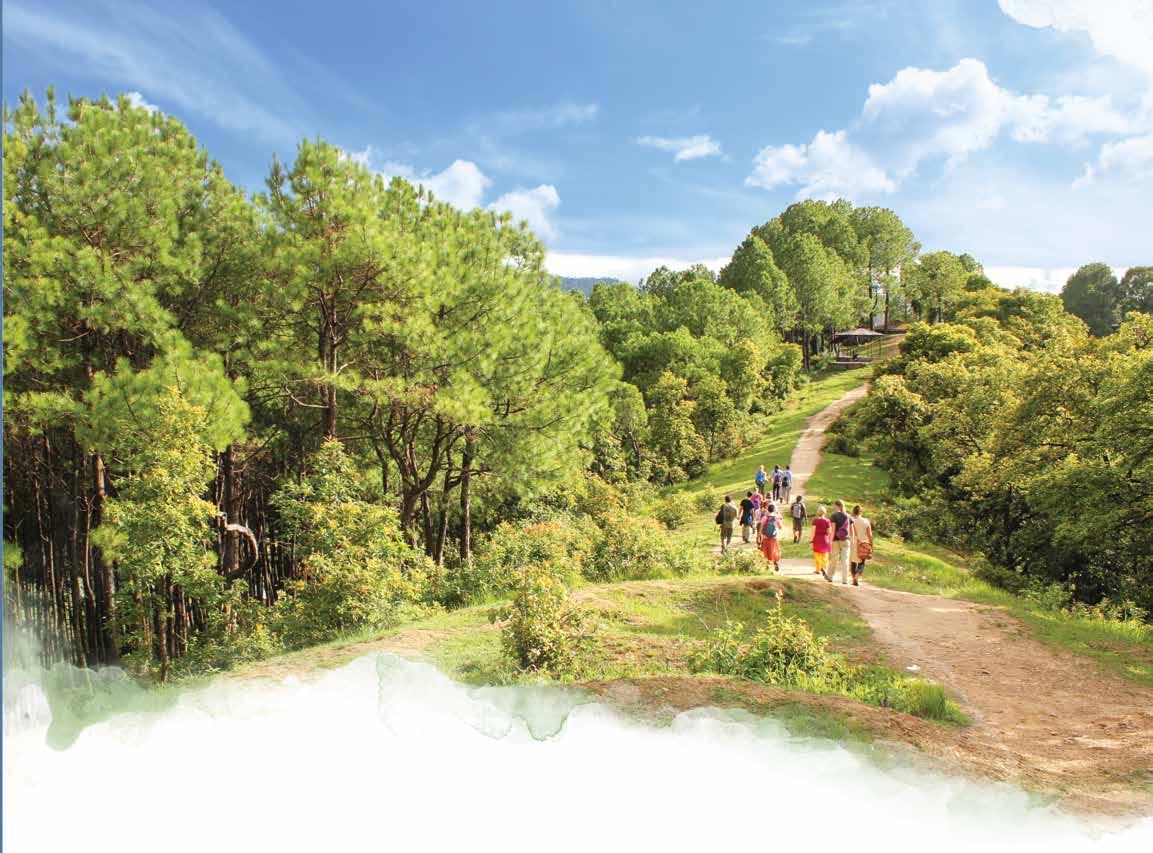
PARTNERSHIPS IN GLOBAL EDUCATION
CUSTOMIZED STUDENT PROGRAMMING | PROFESSIONAL DEVELOPMENT
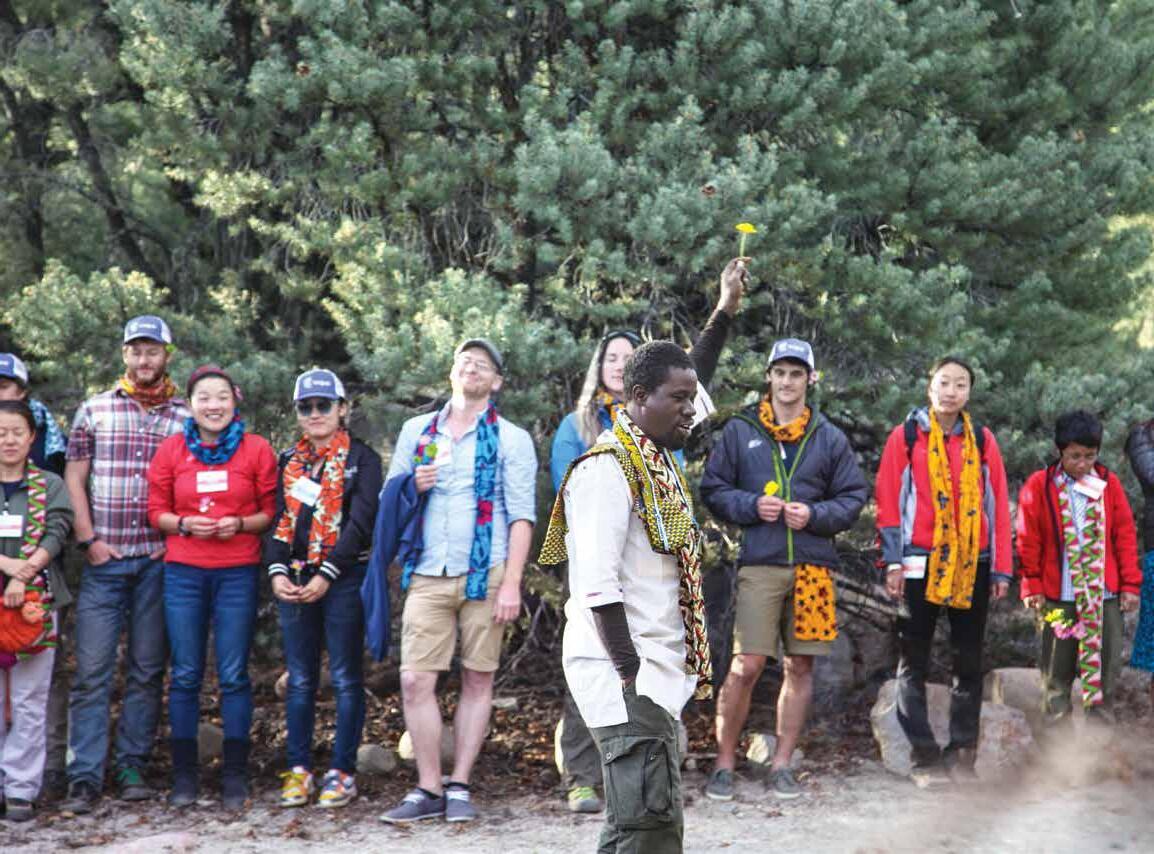
MAPMAKERS ONCE DREW DRAGONS TO REPRESENT LANDS UNKNOWN. TODAY, GOING “where
there be dragons”
MEANS EXPLORING BEYOND WHAT'S known TO YOU . WHEN WE ENGAGE THE UNFAMILIAR, WE DISCOVER NEW PARTS OF OURSELVES AND THE WORLD.
DEVELOP YOUR VISION.
2
Cover Photo: Iris Kim
This Spread: Parker Pflaum, Seaevyi Yonn
WHO WE ARE
Dragons is an innovative and passionate community of educators who have been pioneering the field of global experiential education since 1993. Today, we continue to set the bar for immersive and responsible programming.
CONTENTS
ABOUT PARTNERSHIPS
A Partnership Like No Other
Creating Student Programming
The Student Experience
CUSTOM STUDENT PROGRAMMING
Asia
Africa
Latin America
Europe
North America
OTHER RESOURCES
Professional Development Risk Management
It's All About the People


BE IN TOUCH
Collaboration is the heart of what we do, and it begins with our very first interaction. If you'd like to get started—or maybe you're just intrigued—we'd love to begin a conversation. Please take a few minutes to fill out our Partnership Survey Form
Tel:
+1 303.413.0822
Email: info@wheretherebedragons.com
Web: www.wheretherebedragons.com/partners


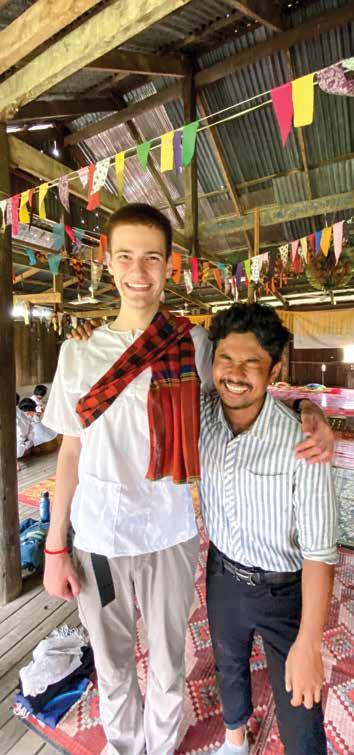
32–33 34–35 36–37 39 39
4–5 6–7 8–9 10–21 22–25 26–29 30 31 3 WWW.WHERETHEREBEDRAGONS.COM/PARTNERS
FAQs Next Steps
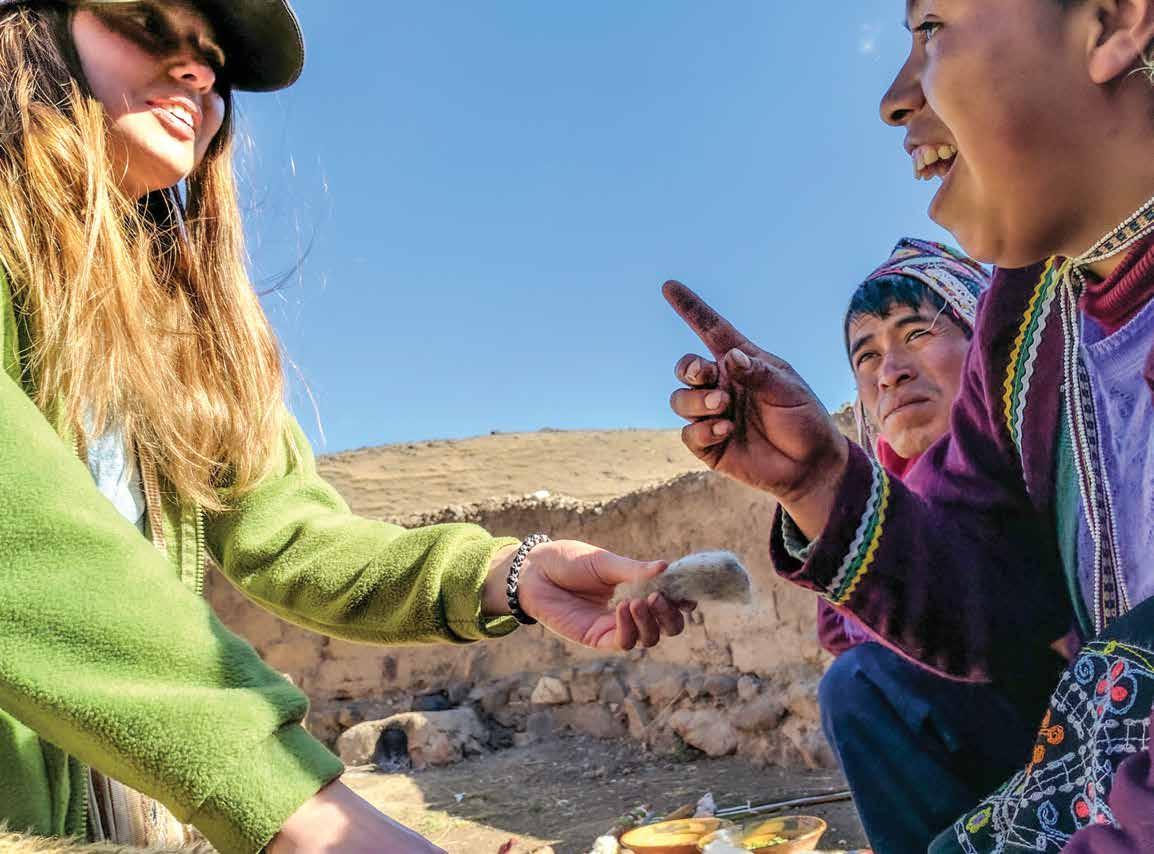
It’s not a matter of you being the knowledgeable person and throwing everything to the learner. You just have the key to the room of knowledge. You open the door and you push them in, telling them where the traps are."
—Mbouille Diallo
SENEGAL INSTRUCTOR
4
Photo: Dave Haffeman
A PARTNERSHIP LIKE NO OTHER
WE'RE DEDICATED TO YOUR PROCESS
Are you an educational visionary looking to deepen and enhance your students’ growth and learning? Dragons innovative approach offers a level of access and engagement like no other. Our Partnerships with schools and universities are designed to clarify your goals and vision, build systems and tools that generate alignment from parents and colleagues, and work together to coauthor unparalleled student programming. Through a customized suite of consulting, training, and programming, we work with you every step of the way to empower a more responsible, safe, and educational global program. What’s in a Partnership?
PARTNERSHIP SERVICES
We offer Customized Student Programs built to foster connection, cultural competency, and knowledge, Consulting and Coaching for administrators on risk management and curriculum design, and Professional Development programming for faculty that builds skills and confidence for leading students in the field.
MEET A FEW OF OUR PARTNERS
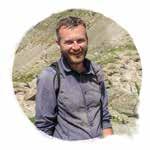
“As a partner, Dragons brings so much more than sound logistics and industry leading risk management—they also offer access to personal relationships with inspiring local leaders and activists and expert facilitation of the student experience. The result is that students come away with authentic and personally meaningful connections.”
–Matt
Lynn, Assistant Director John H. Pace Jr. ’39 Center for Civic Engagement PRINCETON UNIVERSITY
ADMINISTRATIVE SUPPORT
Our team of veteran administrators leverages regional and risk management expertise to support families, students, and faculty with timely and thorough information. We carefully walk you through an intentional program design process, thorough admissions and travel preparation curriculum, and pre-departure logistics.
ACCESS & ENGAGEMENT
Once in the field, our professional and highly trained instructors offer every student individual mentorship and expert cross-cultural facilitation. Students and faculty gain access to carefully managed relationships with inspiring individuals and welcoming communities around the world fostering profound student growth and learning.
“We’re proud to work with Dragons on Tufts Civic Semester. Their staff have been exceptional collaborators in supporting our students and creating an impactful program.”
–Jessye
Crowe-Rothstein First-Year Global Programs Manager, Jonathan M. Tisch College of Civic Life TUFTS UNIVERSITY

"Dragons is an invaluable partner when it comes to assessing on-the ground risks. They have proven to be flexible and accommodating when it comes to rerouting and rescheduling programs due to risk management concerns. They also provide our faculty training for proactive and reactive risk management skills for student travel programs."
–Jessica Yonzon Director of

ACE Center and Global Education CASTILLEJA SCHOOL
5 WWW.WHERETHEREBEDRAGONS.COM/PARTNERS
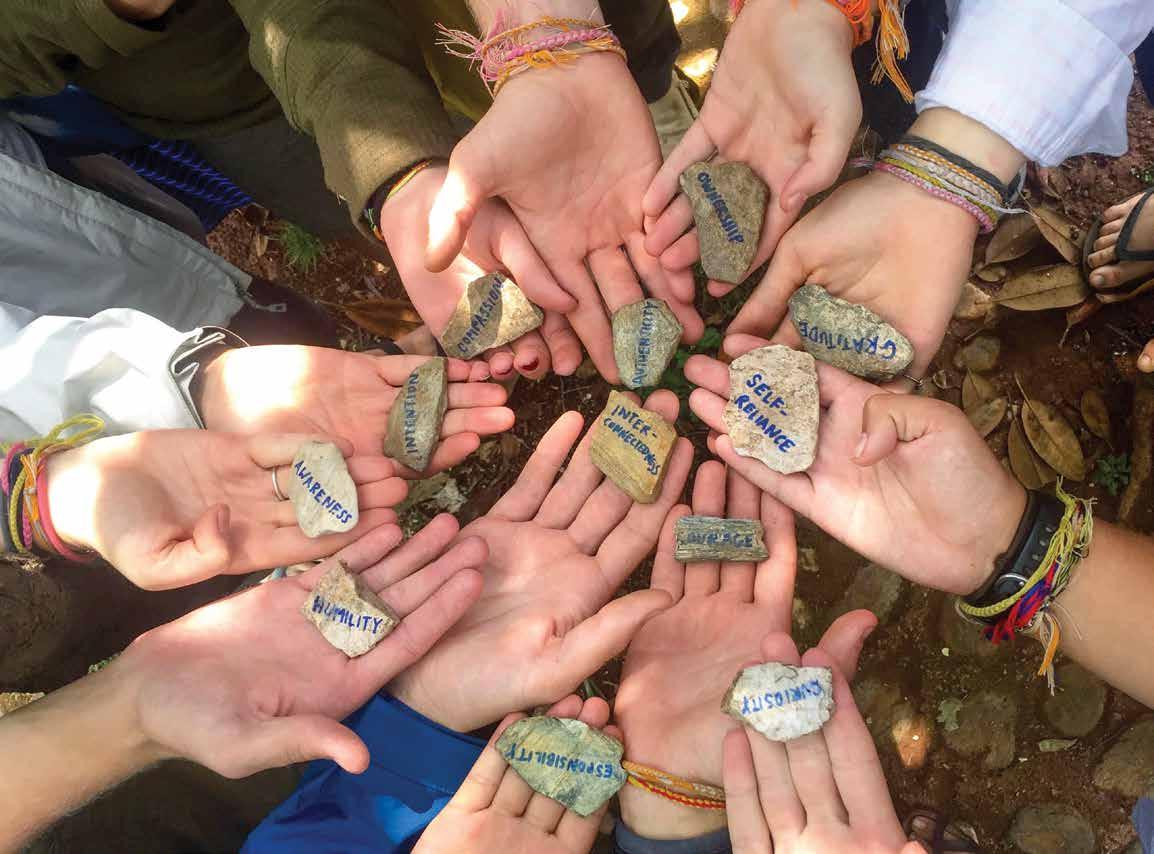
I have worked with other educational travel companies and those trips were nothing compared to what my students experienced with Dragons. Put simply, it’s a more down to earth, intimate, and perspective-altering experience. It’s not a trip—it’s a life experience."
—Claire
Shea, Spanish Teacher MILTON ACADEMY
6
Photos: Kelsey Dailey, Christina Rivera Cogswell, Christina Rivera Cogswell, Arvin Dang
CREATING STUDENT PROGRAMMING
A COLLABORATIVE DESIGN PROCESS
Each student experience is the result of countless hours of careful planning—a weaving together of progressively more challenging and immersive experiences leading students into deeper levels of engagement with place and self. Our three-phase course-design process ensures that every program is customized to consider your vision and goals, offering multiple opportunities along the way to weave together academic themes, specific contacts and places, and most importantly, the interests of students and educators. This is how we customize student programming.
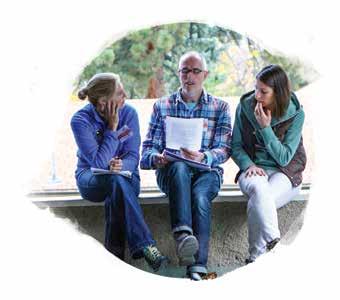
STEP I: DEFINE VISION & GOALS
How do we want students to be impacted by their experience? What knowledge, skills, and mindsets do we seek to cultivate through our program? An exploratory conversation helps identify your learning outcomes, vision, and goals. We share a list of opportunities for student experiences, and offer suggestions and feedback based on local realities and experience. We also align your institutional risk tolerance and program history with our approach.
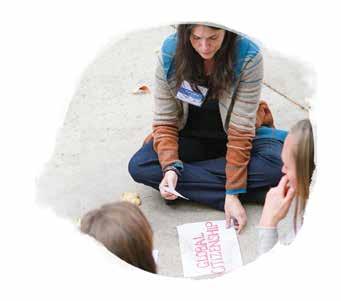
STEP II: INTENTIONAL PROGRAM DESIGN
What experiences, new relationships, and knowledge will lead us to our defined learning outcomes? We draft an initial program proposal using the Dragons Core Curriculum, long standing programmatic resources, and relevant institutional knowledge. We balance your desired learning outcomes with our extensive regional expertise to present an itinerary that best realizes your course goals. We actively seek your feedback through additional customization and conversation.
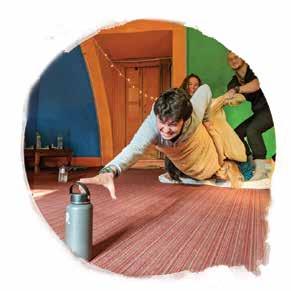
STEP III: PRE-DEPARTURE CURRICULUM
How do we cultivate a mindset for engagement and curiosity? Dragons offers exceptional resources for teachers, students, and parents to prepare for their program. Written curriculum, in-person meetings with your instructor team, and webinars help align expectations, set goals, and clarify roles and responsibilities for all parties. We strongly believe that intentional tone-setting and group culture building will lead to a safer, more profound experience.
7 WWW.WHERETHEREBEDRAGONS.COM/PARTNERS
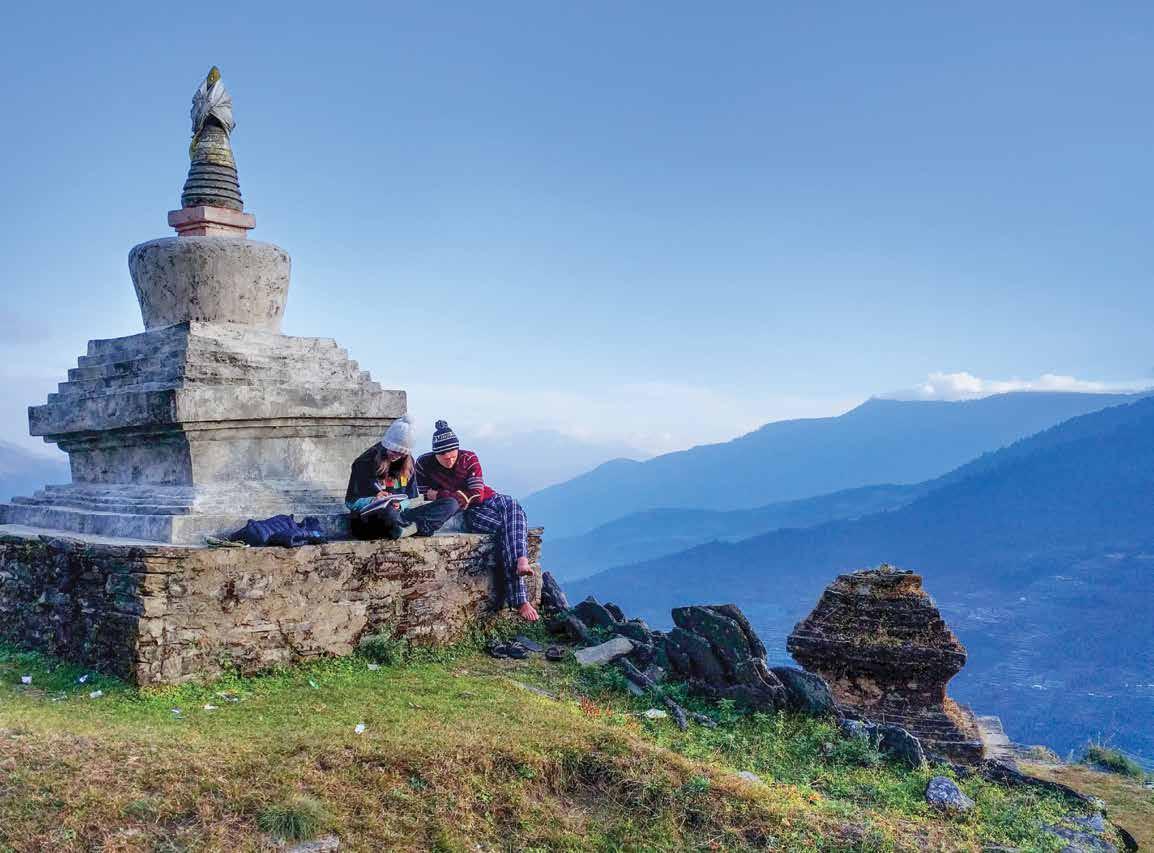
Dragons demonstrates, at every level, a profound commitment to creating the very best student experience abroad. The caliber of their on-site staff, their tireless attention to risk management, and their truly innovative approach to experiential learning make them a valued program partner."
—John Luria, Bridge Year Program Director PRINCETON UNIVERSITY
8
Photo: Lauren Cain
THE STUDENT EXPERIENCE
A HOLISTIC CURRICULUM
Our programs help students wholeheartedly engage with multiple realities to expand perspectives, build new connections and gain inspiration and knowledge for stewarding our shared future. We accomplish this by intentionally learning directly from the daily realities of the people and places we visit—often beautiful, sometimes complex, and always real. Here is how our Core Curriculum creates holistic learning.
CORE LEARNING OBJECTIVES
Before we decide “where” we ask ourselves “why." Our intended outcomes drive the program design. Dragons works with three core learning outcomes:
9 PROGRAM COMPONENTS
Programs are built on a range of activities that immerse students, help them build meaningful connections, and achieve their own learning objectives.
SKILLS PROGRESSION
A 3-phase journey towards student empowerment and self-directed learning.
Global Engagement
Instructors facilitate learning about culture, globalization, social and environmental justice, and sustainable development, and relate them directly to students’ lives.
Self-Awareness
Instructors skillfully present opportunities for students to reflect on their own values, identity and cultural upbringing through new perspectives and experiences.
Leadership
Instructors work carefully with each student to mentor new skills, offer meaningful leadership opportunities, and provide feedback and support.
GLOBAL
Phase 1: Orientation
We assess students’ current skills and knowledge, help them set group and individual goals and build new skills and knowledge for effective and safe engagement.
Phase 2: Immersion
Through carefully scaffolded cultural engagement, students practice new skills, ‘fail forward’ and receive guidance and feedback to achieve competency and personal growth.
Phase 3: Transference
Students demonstrate their learning and newly acquired skills and competencies. Instructors create space to synthesize, reflect, celebrate and prepare for the reintegration back home.
RESPONSIBLE TRAVEL
LANGUAGE STUDY
RELIGIOUS & SPIRITUAL TRADITIONS
LEARNING SERVICE
SOCIAL & ENVIRONMENTAL JUSTICE
HOMESTAY
FOCUS OF INQUIRY
TREKKING
INDEPENDENT STUDY PROJECTS
IMMERSION
ENGAGEMENT + SELF-AWARENESS + LEADERSHIP ORIENTATION TRANSFERENCE 9 WWW.WHERETHEREBEDRAGONS.COM/PARTNERS

GROUP DETAILS
Program Size: 10–16 Students
Intended Ages: 12–22
Length: 8–21 Days
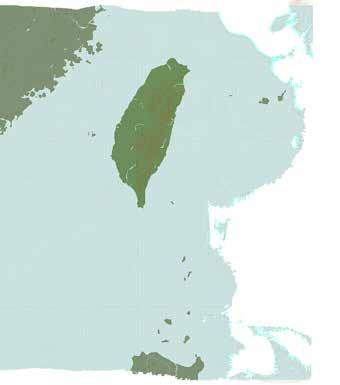
TAIWAN
ACADEMIC THEMES
Climate Change & Adaptations, Food Systems & Sustainability, Social & Environmental Entrepreneurship, Language Study, Aboriginal Cultures & History, Tea Culture, Buddhism
TAIWAN IS A SMALL ISLAND WITH ENORMOUS DIVERSITY, A COMPLEX HISTORY, AND A BIG IMPACT ON GLOBAL POLITICS.





Taiwan has preserved many cultural riches long lost beyond its borders. Amidst a thriving economy, civically engaged democratic system, and cherished Chinese cultural heritage, Taiwan’s people are creating a future that weaves together the many threads of their collective past.
Dragons programming in Taiwan explores economic growth, democracy, and the ongoing search for a unified nation-state narrative. With a program base in the capital of Taipei, we explore how Taiwanese negotiate their country’s past and present as they reinvent their political and cultural identities. This program offers a unique window into the cultural fusions of Taiwan and the impacts of a tense geopolitical environment through exploring civic engagement, food systems, democracy, and environmentalism.
Just an hour from Taipei, students have the chance to live and work with alternative farmers in Yilan County learning about the
PROGRAM AREA SPECIFICS
Programming Since 2017
Permanent Staff On-Site Partnership with University
deeply embedded traditions around food production, processing and preparation, and the continuing struggle to ensure that those processes are fair and sustainable—a growing national movement in Taiwan. While living and working alongside local farmers, students are able to open conversations that take issues from local, hands-on practice to global issues related to trade, geopolitics, climate change and economic development.
Further south along the east coast, we offer students a chance to connect with Buddhist environmentalism and hike one of the most breathtaking canyons in the world—the Taroko Gorge. In Taitung County students work with local aboriginal communities on impacts of tourism and development, language and culture survival and historical prejudice.
 TAIWAN
CHINA
TAIPEI
TAITUNG
YILAN
TAROKO GORGE
TAIWAN
CHINA
TAIPEI
TAITUNG
YILAN
TAROKO GORGE
10
Left: Yi Ching Hsieh, ©CCLoop Right: Dragons archives
Days 1–3
TAIWAN: SEARCH FOR IDENTITY
FOCUS OF INQUIRY
Understanding national identity through economics, environmentalism, history, and politics
LEARNING OUTCOMES
» Practice conversational Mandarin and gain exposure to Taiwanese languages.
» Explore food systems, arts, and traditions of Taiwan.
» Learn about the history of the Communist revolution and political establishment of Taiwan.
» Understand economic development, industrialization, climate change, and environmentalism.
SAMPLE ITINERARY
Zhenxibao: Orientation, History, and Aboriginal Cultures
Our journey through Taiwan promises a captivating blend of cultural immersion, environmental exploration, and socio-political insights. Starting in the ancient cypress forests of Hsinchu, hosted by the Atayal tribe, we delve into Taiwan's 40,000-year history. Engaging with indigenous communities, we learn about their traditions, languages, and efforts for cultural preservation.
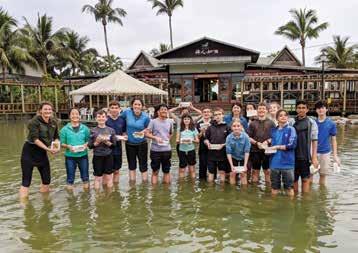
Days 4–6
Taipei: Urban Immersion, The Founding of Taiwan
In Taipei, visits to the National Museum and iconic landmarks like the Chiang Kai-Shek Memorial offer a deep dive into Taiwan's complex identity. Exploring the city's architecture and culinary scene, we uncover remnants of its modern history and connect with local social entrepreneurship initiatives, discussing Taiwan's unique blend of democracy and capitalism.
Days 7–10
Yilan: Rural immersion, Food Systems, and Tea Culture
Venturing eastward, we explore the importance of tea in Pinglin's gardens and learn from generational farmers. Settling into homestays in Yilan, daily check-ins and discussions provoke reflections on industrialization, food systems, and sustainability. Experts share insights on various farming techniques, highlighting their economic, cultural, and environmental implications. A day at Taroko Gorge offers aweinspiring hikes and insights from local ecologists on environmental conservation efforts.
Days 11–13
Taitung: Transference, Identity, and Tourism in Taiwan
Continuing south to Taitung County, we immerse ourselves in the life of the ethnic Paiwan people in Yuli Township. Through community-based education and tourism, we understand the efforts to preserve indigenous language, culture, and history.
Throughout our journey, we gain a profound appreciation for Taiwan's rich biodiversity, lush landscapes, and the interconnectedness of its ecosystems with the lives of its people. Our experiences foster a deeper understanding of the geopolitical influences shaping Taiwan’s national identity and the broader cultural and environmental contexts of the island.

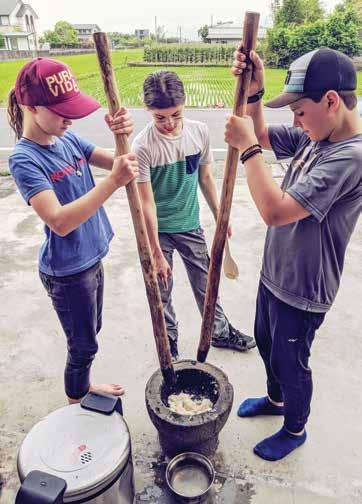

11 EXAMPLE PROGRAM AND ITINERARY
CHINA

GROUP DETAILS
Program Size: 10–16 Students
Intended Ages: 12–22
Length: 8–21 Days
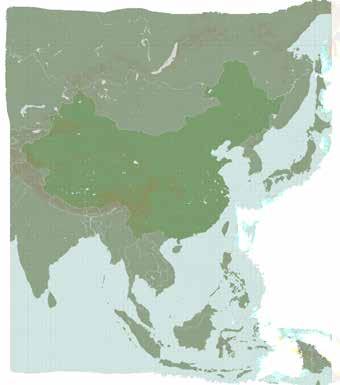






ACADEMIC THEMES
Ethnic Minority Studies, Urban Growth & Economic Development, Food Systems, Environmental Impact, Tea Culture, Martial Arts, Calligraphy, Language Study, Migration
OLD NEIGHBORHOODS OF WOODEN HOUSES
ARE DEMOLISHED TO MAKE WAY FOR 80-STORY BUILDINGS. Streets recently filled with bicycles are now jammed with new cars. Buddhist monks read ancient sutras from iPads, and millions of rural farmers move between home and work in the city to support their families. New highways, rail lines and airports are under construction virtually all the time, everywhere, in a race to keep up with 1.4 billion people on the move. If you want to understand the world we live in, there’s no way to ignore China.
As one of the first organizations to offer community-immersed learning in China, Dragons has maintained a program house, homestay, language teachers and myriad guest speakers and partner organizations in the city of eternal spring, Kunming for decades. A manageable city for students, Kunming offers learning about ethnic diversity, history, migration, economy, and a variety of hands-on cultural opportunities. Students may
PROGRAM AREA SPECIFICS
Programming Since 1993
Based in Kunming and Language School 3 Homestay Communities
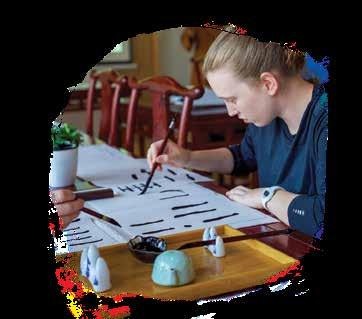
partake in martial arts training, calligraphy, tea culture, cooking lessons, all while navigating the city easily. In more traditional and rural village settings, Dragons offers students opportunities to live with ethnic minority families, learning through immersion about traditional agricultural practices, comparative religion, impacts of development, and political representation. Programming in Yunnan includes Dali and the Lijiang areas where students explore ancient dynasties and important trade routes. In Beijing, we experience personalized group stays at a family-run guest house near a remote section of the Great Wall, and enjoy exploration of important historical sites, as well as guest speakers on journalism, economics, and social movements. In addition, ample programming opportunities exist in other provinces, connecting students with semi-nomadic
XINING
CHINA
MONGOLIA
INDIA
LIJIANG
12
communities on the Tibetan Plateau, culinary traditions in Chengdu, or monasteries in Gansu just to name a few.
Left: John Leiner, Grace Jackson Right: Eric Jenkins-Sahlin, Isabel Garfinkel
Days 1–4
CHINA: CENTER AND PERIPHERY
FOCUS OF INQUIRY
Exploring historical tensions between urban and rural populations, migration, and environmental impact
LEARNING OUTCOMES
» Practice Mandarin language and learn about ethnic minority cultures and languages.
» Explore Chinese history through dynasties and the role of populist uprisings.
» Compare and contrast rural Chinese traditions with contemporary popular culture.
» Explore tensions between environmental sustainability and economic development.
SAMPLE ITINERARY
Xiang
Shui Hu and Beijing: Orientation, Political History, and Economic Development
We begin our program at the hearth of a traditional farmhouse kitchen along a remote section of the Great Wall. Our first 48 hours are focused on orientation and tone-setting, building a supportive and aligned group container, assigned leadership roles, and introducing important health and safety considerations. We also frame our primary themes and provide historical context. From the Great Wall, we settle into lodgings in the Hutong neighborhood of Beijing, conduct local mapping exercises, and hear from guest speakers.
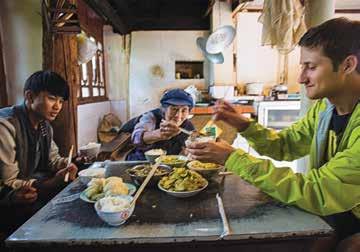
Days 5–7
Kunming, Yunnan Province: Urban Life, Traditions, and Modernity
In Kunming, we continue our examination of modern and traditional China by taking a Tai Chi lesson in the park and enjoying sessions on calligraphy and tea culture. We visit a traditional Yi minority village outside the city and begin exploration of alternative models of development, and the tension between rapid growth and environmental health. We partner with a local community initiative for sustainable living and visit the local temple, exploring traditional Yi culture and worldview while having conversations with villagers.
Days 8–11
Lijiang
and Nanyaocun: Ancient Kingdoms and Ethnic Minority Cultures
In the medieval city of Lijiang we explore impacts of tourism, learn about historical trade routes and empires, and interact with the community before traveling to the Naxi minority village of Nanyaocun for a homestay immersion. Here, we connect with local families to learn more about traditional agriculture and cooking. We settle into homestays with hosts that have worked with Dragons groups for over 15 years, and have conversations about how life has changed as a result of tourism development in the area.

Days 12–13
Tiger Leaping Gorge: Transference and Inspirational Landscapes
We finish our program with two days of exploration along the inspiring Tiger Leaping Gorge where a mystical landscape provides inspiration for conversations on development, tradition, and modernity and what this all means for our lives back home.
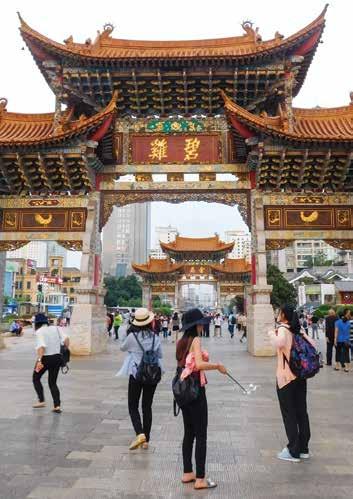
13
EXAMPLE PROGRAM AND ITINERARY
CAMBODIA

GROUP DETAILS
Program Size: 10–16 Students
Intended Ages: 12–22
Length: 8–21 Days
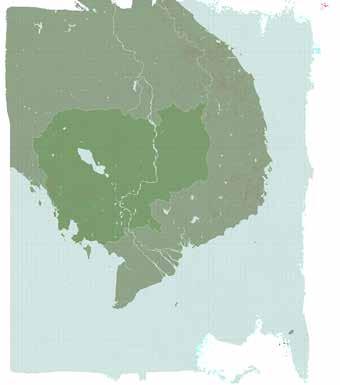




KEP
ACADEMIC THEMES
Peace & Reconciliation, Theravada Buddhism, Economic Development & Environmental Impacts, Social Entrepreneurship
CAMBODIA IS OFTEN PORTRAYED THROUGH A LENS FOCUSED ON ITS PAST: A HISTORY WOVEN WITH ANCIENT JUNGLE TEMPLES AND TRAGIC PERSECUTION. However, today's Cambodia is actively redefining its narrative on the global stage. It is a land brimming with hope, ingenuity, entrepreneurial spirit, and a commitment to healing.
Dragons is based out of the culture and arts center of Battambang in a historical neighborhood of traditional timber-framed homes. Located on the outskirts of Battambang, Cambodia's secondlargest city, students immerse themselves in the local way of life. They engage with various cottage industries, from rice paper and fish oil production to weaving, bamboo sticky rice cultivation, and ceramics. Additionally, we collaborate with NGOs focused on public health, education, and cultural revival.
PROGRAM AREA SPECIFICS
Programming Since 2005
Year-Round Program House and Staff in Battambang 4 Homestay Communities and 10+ NGO Partners
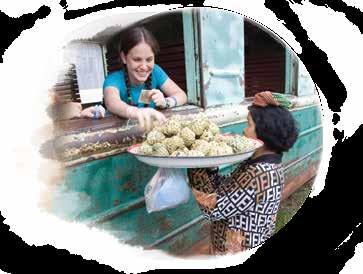
In Siem Reap, our collaboration extends to youth empowerment initiatives, focusing on education and peace-building endeavors. Here, students gain hands-on experience in peace studies, democracy, and fostering youth empowerment. Along the life-giving Mekong River, which sustains the livelihoods of millions, students reside with local subsistence farmers and fishermen. Imbued with the rhythms of rural life, they absorb wisdom from elders, spiritual leaders, political figures, and young people alike. Through these interactions, they gain deeper insights into Cambodia's past traumas and envision a future shaped by the next generation's resilience and determination. Finally, in the bustling capital of Phnom Penh, our partnerships with Buddhist and feminist social entrepreneurs inspire visions of a brighter future for Cambodia. Despite delving into the somber history of the Khmer Rouge regime, we find rays of hope through these connections.
CAMBODIA
LAOS
VIETNAM
THAILAND
CHINA
BATTAMBANG
SIEM REAP
PHNOM PENH
14 WWW.WHERETHEREBEDRAGONS.COM/PARTNERS
Left: Sophie Abo, Dragons archives Right: Eliana Rothwell, Alex Biddle
THAILAND

GROUP DETAILS
Program Size: 10–16 Students
Intended Ages: 12–22
Length: 8–21 Days
MYANMAR

MAE

CHIANG
SUKHOTHAI


UBON

BANGKOK
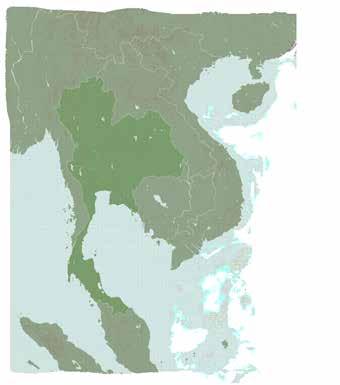
KRABI

ACADEMIC THEMES
Conservation, Indigenous Cultures, Agroecology, Theravada Buddhism, Migration, Impacts of Tourism
FROM THE LUSH MOUNTAINS AND RICE FIELDS OF NORTHERN THAILAND TO THE VIBRANT METROPOLIS OF BANGKOK
IN THE SOUTH,
THAILAND'S ALLURE CAPTIVATES AND BECKONS EXPLORATION. Today, Thailand occupies a pivotal position in one of the world's most dynamic regions, home to roughly 70 million people and flanked by China and India. Few places are as strategically positioned to reap economic benefits or endure ecological challenges like Southeast Asia.
Nestled amidst the undulating landscapes of northern Thailand lies Dragons program hub in the bustling city of Chiang Mai. This locale offers abundant opportunities to delve into key themes associated with programming in Thailand, including migration, environmentalism, Buddhism, and economic development. In Chiang Mai, students reside in cozy familyoperated guesthouses, engaging with guest speakers to gain insights into the geopolitical, ethnic, and economic dynamics shaping the region.
PROGRAM AREA SPECIFICS
Programming Since 1993
Program Base in Chiang Mai
2 Homestay Communities and 10+ NGO Partners
Visits to local monasteries provide deeper insights into the pivotal role of Mahayana Buddhism, while interactions with grassroots organizations shed light on the rights and experiences of migrant workers, particularly from neighboring Myanmar.
Beyond the city limits, Dragons maintains enduring ties with various host communities, offering students a glimpse into their cultural heritage, traditional practices, and sustainable agricultural traditions passed down through generations. To the south, Bangkok serves as the epicenter of Southeast Asia's pop culture, economy, transportation, and healthcare. Here, students immerse themselves in Thai history, culture, and art, while also exploring urban studies and grappling with the ramifications of rapid population growth. Thailand's diverse landscapes and urban centers serve as immersive classrooms, where students not only expand their knowledge but also foster a deeper understanding of the interconnectedness between society, culture, and the environment in this dynamic region.
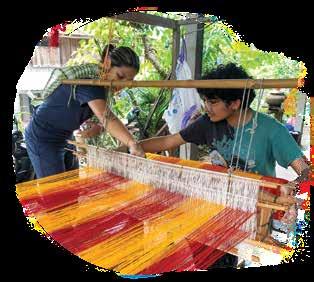 THAILAND
LAOS
CAMBODIA
INDIA
CHINA
THAILAND
LAOS
CAMBODIA
INDIA
CHINA
RATCHATANI
SON
HONG
MAI
15 WWW.WHERETHEREBEDRAGONS.COM/PARTNERS
INDONESIA

GROUP DETAILS
Program Size: 10–16 Students
Intended Ages: 12–22
Length: 8–21 Days


UBUD,







ACADEMIC THEMES
Indigenous Ocean Cultures, Marine Biology, Fine Arts, Spirituality, Aesthetics, Cultural Collisions & Syncretism, Coral Reef Research & Conservation, History of International Trade & Globalization, Gender Studies In Java
INDONESIA, SPANNING OVER 17,000 ISLANDS, IS A VIBRANT TAPESTRY OF LANGUAGES, CULTURES, AND BIODIVERSE ENVIRONMENTS. As the world's largest Muslim-majority country, it stands as a beacon of harmony, where Islam, democracy, and religious tolerance intertwine.
Yogyakarta, revered as the cultural nucleus of Indonesia, serves as the headquarters for Dragons programs. Students embark on a journey through the living history of colonial trade while immersing themselves in the rich cultural heritage of Yogyakarta. Through hands-on experiences, they apprentice in age-old practices such as batik making, gamelan music, and Javanese dance. Excursions to iconic landmarks like Borobudur, the largest Buddhist temple globally, and the mystical Dieng Plateau offer profound insights into ancient civilizations and sustainable agricultural practices.
On Flores Island, students venture into the heart of Langa village, where they are embraced by the warm hospitality of local families. Here, amidst the rugged beauty of verdant volcanoes, they gain a deeper
PROGRAM AREA SPECIFICS
Programming Since 2010
1 Year-Round Program House
3 Homestay Communities
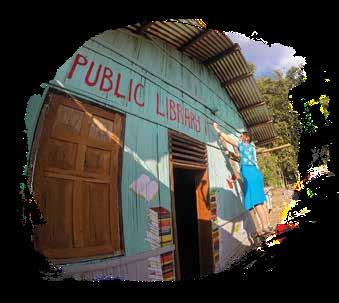
appreciation for ecological diversity, sustainable farming, and cultural traditions. The journey continues to Sulawesi and the enchanting Wakatobi Archipelago, where students dive into the mesmerizing world of marine ecology and the unique lifestyle of the Bajau people. In the pristine waters of Wakatobi's National Marine Park, students reside in traditional bamboo huts, absorbing the wisdom of Bajau traditions and exploring vibrant coral reefs teeming with marine life. They learn the ancient art of spear and net fishing, partake in colorful indigenous ceremonies, and unravel the secrets of mangrove ecosystems—all while contemplating the delicate balance between human activities and environmental conservation efforts. Throughout this transformative journey, students forge deep connections with local communities, fostering cross-cultural understanding, and a profound sense of stewardship for our planet's precious ecosystems.
INDONESIA
AUSTRALIA
BORNEO
CHINA
TANA TORAJA
LUWUK
MANADO
WAKATOBI
KENDARI
BALI MAKASSAR
16
Left: Beatriz Schaver Eizaguirre, Dragons archives Right: Annie Williams, Sadie Fischbeck
Days 1–2
TRUTH AND BEAUTY: ARTS, GENDER, AND SPIRITUALITY IN INDONESIA
Days 3–9
Days 10–11
Exploring the role of women in religious, artistic and economic life
FOCUS OF INQUIRY LEARNING OUTCOMES
» Comprehend Indonesian traditional gender roles influenced by religious, economic, and social factors.
» Explore Javanese fine arts, including batik, silversmithing, puppetry, dance, and theater.
» Gain insight into the fundamentals of Islam, Christianity, Hinduism, Buddhism, and animist beliefs, and their impact on Indonesian society.
SAMPLE ITINERARY
Kaliurang: Orientation and Introduction to the Arts and Cultures of Java
Settle into our cozy accommodations in the quaint town of Kaliurang, nestled on the northern outskirts of Yogyakarta, boasting stunning views of the dormant volcano, Mount Merbabu. Take some time to unwind and participate in orientation activities designed to acquaint you with the local culture, provide essential health and safety information, and set personal goals for the journey ahead.
Yogyakarta: Community Partnership Exploring Arts, Culture, and Spirituality
We transition into Yogyakarta and meet up with our primary community partner, Kampung Halaman Foundation. Alongside local peers, we develop a multi-day art project that will be presented in a final opening. Through vibrant dialogues, we delve into daily life, rituals, and discussions of beauty in Indonesian and American cultures. Over the next days, guest speakers share stories about women in Yogyakarta's art scene, Islam's influence on local traditions, and LGBTQ+ representation. Immersed in traditional crafts, we learn Batik dyeing, cooking, pottery, woodblock printing, and silverwork. These arts reflect Javanese beauty standards, alongside herbal medicine. Visiting Borobudur and Prambanan Temples, we marvel at their ancient architecture and spiritual significance. Collaborating with peers, we conceptualize art projects, explore local galleries, and showcase our work in a public exhibition, celebrating our shared creativity and cultural exchange. Sitting over 6,000 feet above sea level, we take an overnight excursion to Dieng plateau which aptly means “Abode of the Gods” in Javanese. Home to ancient Hindu temples and geothermal colored lakes, we embark on short hikes and take in a stunning sunrise over the surrounding volcanic peaks with the call to prayer echoing in the background.
Bantul: Transference, Reflection, and Retreat Retreat to the tranquil town of Bantul to commence the transference process. Reflect on experiences, pondering how to integrate newfound knowledge into lives back home. Conclude discussions while indulging in some final Indonesian cuisine before embarking on the journey home. This journey fosters not only cultural appreciation but also personal growth, leaving lasting impressions on all participants.
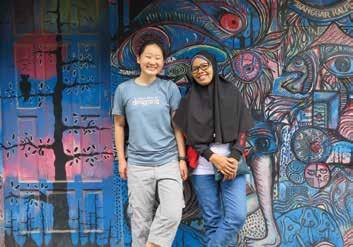
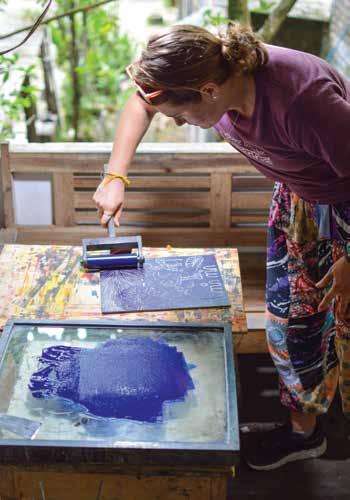

17 EXAMPLE PROGRAM AND ITINERARY
INDIA

GROUP DETAILS
Program Size: 10–18 Students
Intended Ages: 14–22
Length: 8–21+ Days
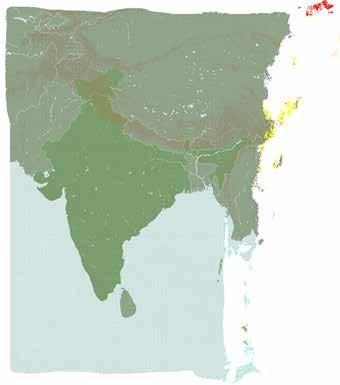
DHARAMSHALA
ACADEMIC THEMES
History, Holistic Health & Healing, Contested Territories, Spiritual Traditions & Comparative Religions, Sustainable Development, Women In Society
INDIA, A LAND OF CONTRASTS BLENDING
PROGRAM AREA SPECIFICS
Programming Since 1994
Year-Round Program House & Staff In Udaipur
3 Homestay Communities & 10+ NGO Partners






BUSTLING MARKETPLACES, ANCIENT CITIES, AND VAST GOLDEN DUNES, IS STEEPED IN CONTRADICTION. Human-drawn rickshaws stand juxtaposed with internet cafes, and privilege coexists with poverty amidst timeless rituals and modernity.
Dragons India programming, since the early 1990s, focuses on the North, where Himalayan cultures merge with Delhi's sprawling history, Varanasi's spiritual core, and Rajasthan's layered past.
In Delhi, students grapple with the sheer numbers of Indian citizens and the complexities of administering the world’s largest democracy. Here, they build a foundation in Indian history, culture, and politics, connecting with local authors, scholars, and organizations addressing urban social issues. Moving north to Rishkesh students may immerse in Hinduism and holistic health while living at an ashram or
studying at an ayurvedic university, or live with local families and learn about rural development in Kumaon. In the Kashgar region students may explore Tibetan Diaspora and a chance audience with his holiness the Dalai Lama or explore stark landscapes and rich cultural heritage, trekking through remote villages and visiting ancient monasteries in Ladakh.
Dragons operates a year-round base in Udaipur, Rajasthan where students delve into artistic traditions and royal history and travel to nearby Amritsar and Jaipur. Dragons has built customized programming focused on development and spirituality in Varanasi, climate change in Bangalore, history in Goa and Himalayan cultures in Sikkim.
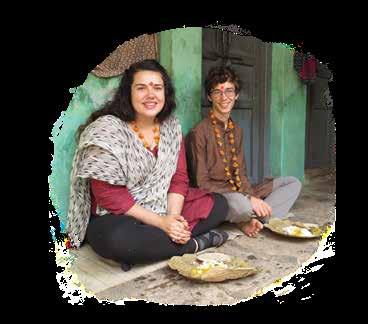 INDIA
PAKISTAN
CHINA TIBET NEPAL
INDIA
PAKISTAN
CHINA TIBET NEPAL
DELHI VARANASI UDAIPUR RISHKESH
18
Throughout their journey, students engage with local communities, learn from experts, and reflect on India's complexities.
Left: Aaron Slosberg, Christy Sommers
Right: Cara Starnbach, Theo Weiman
Days 1–3
INDIA: TRADITION AND MODERNITY
Days 4–5
Days 6–10
Days 11–13
Exploring continuity and change through spiritual beliefs and rural development
FOCUS OF INQUIRY LEARNING OUTCOMES
» Explore the push and pull factors leading to mass rural to urban migration.
» Explore basic tenets and history of Hinduism, Islam, Buddhism, Jainism, Sikhism, and how they impact local development strategies and growth.
» Gain understanding of women’s role in society, education access, and economic empowerment.
SAMPLE ITINERARY
Delhi: Orientation, Cultural and Historical Foundations
We begin our program acquainting ourselves in the dynamic streets of Delhi for the orientation phase. Vital health and safety guidelines, cultural dos and don'ts, and rudimentary language skills become our compass. Exploring landmarks like the grand Red Fort and the architectural marvel, Jama Masjid, we absorb the city's historical legacy. Navigating bustling markets and ancient alleys via bicycle-rickshaws and taxis, we sync with urban life's vibrant rhythm while contemplating global development's impact.
Lakshmi Ashram: Spiritual Beliefs and Communal Living in the Himalayan Foothills
Departing Delhi by train, we head north to the Himalayan foothills. Nestled in the Kumaon region, Lakshmi Ashram embraces us with Gandhian principles, focusing on girls' education and women's empowerment.
Peora: Rural Homestay and Community Immersion
Transitioning to Peora, a serene farming village, we integrate into rural life. Hosted by families linked to Aarohi NGO, we engage in daily chores, share meals, and glean insights into community development. Through dialogues with local leaders, we contribute to collaborative service projects, addressing women's rights and land ownership issues.
Agra: Transference, Reflection, and Comparative Religions
Reluctantly bidding farewell to Satoli, we return south towards Delhi, signaling the onset of our Transference phase. A brief stopover in Agra gifts us a mesmerizing sunrise at the Taj Mahal, etching indelible memories. Back in Delhi, we conclude our journey with souvenir hunting and a celebratory dinner, cherishing newfound bonds. Throughout our adventure, we learn to navigate diverse cultures with respect and empathy, fostering a deeper understanding of global interconnectedness. Our experiences in both urban and rural settings offer multifaceted insights into the complexities of development, inspiring us to advocate for positive change in our communities. As we bid farewell to India, we carry with us not only memories of breathtaking landscapes but also profound lessons in compassion, resilience, and the power of collective action.
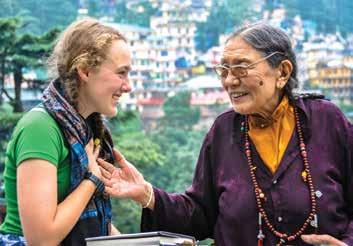
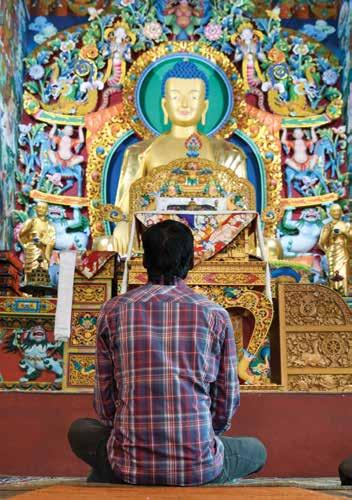

19 EXAMPLE PROGRAM AND ITINERARY
NEPAL

GROUP DETAILS
Program Size: 10–18 Students
Intended Ages: 14–22+
Length: 8–21+ Days
ACADEMIC THEMES
Artistic & Spiritual Traditions of the Himalaya, Transitional Government, Migration, Agroecology
Urban Expansion & Planning, Rural Health
PROGRAM AREA SPECIFICS
Programming Since 1994
2 Program Houses and Year-Round Staff
4 Homestay Communities and 10+ NGO Partners





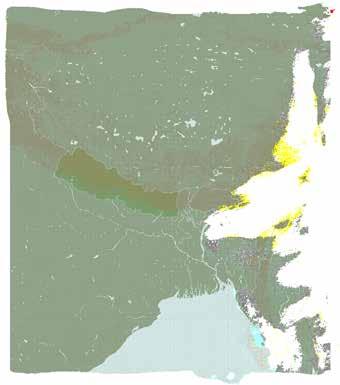
BELOW THE TOWERING, GLACIER-CLAD HIMALAYAS, LIES A COUNTRY AT ONCE STEEPED IN TRADITION AND RAPIDLY MODERNIZING. Here, religious tradition is inextricable from daily life, whether one lives in a remote village in the mountain foothills or commutes to an office in the capital each day. The relationship between tradition and modernization is complex, and its effects on human life in Nepal are profound. In the Kathmandu Valley, Dragons has maintained a program house and network of relationships since the 1990s, bringing students into direct dialog with monks, United Nations representatives, professors, artisans, farmers and more to better understand topics of identity, spirituality, and community. In the ancient Newar city of Patan, students walk cobbled streets to apprentice with world famous Thangka painters, silversmiths,
woodworkers and ceramicists—whose artforms provoke a deeper understanding of Himalayan cultural worldview and tradition, and raise questions around sacred and profane, materialism and “progress.” In the second largest city of Pokhara, we may connect with a series of NGOs and local organizations.
Themes of migration, urban growth, and the constant tension of maintaining cultural traditions and identity, while participating in global economy and capitalist society provide many of the guiding questions to our programming in the valley. Outside of Kathmandu, students live in a monastery and learn to practice meditation and Buddhist dharma from local masters. They may embark on multi-day treks, hiking to remote and traditional subsistence villages steeped in a way of life largely unchanged for centuries.
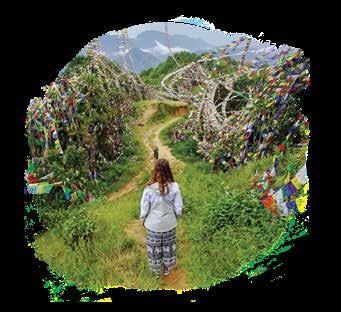 NEPAL
INDIA
CHINA
TIBET
BHUTAN
DELHI
LEH
KATHMANDU POKHARA PATAN
NEPAL
INDIA
CHINA
TIBET
BHUTAN
DELHI
LEH
KATHMANDU POKHARA PATAN
20 WWW.WHERETHEREBEDRAGONS.COM/PARTNERS
Left: Benjamin Felser, Kira Rosentreter Right: ©MyBhutan
BHUTAN

GROUP DETAILS
Program Size: 12–18 Students
Intended Ages: 12–22+
Length: 6–14 Days
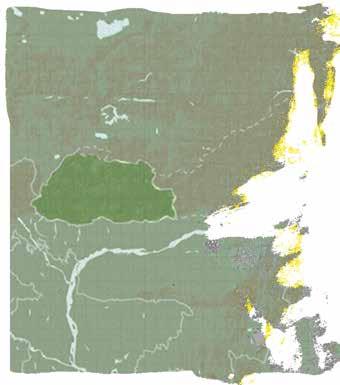


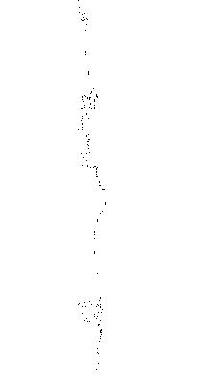
ACADEMIC THEMES
Quality of Life & Happiness, Environmental Conservation, Spiritual Traditions, Cultural Heritage, Governmental Systems
THE HIMALAYAN KINGDOM OF BHUTAN GRANTS
UNPARALLELED ACCESS TO EXPANSIVE AND UNSPOILED LANDSCAPES, COMPELLING US TO REASSESS OUR RELATIONSHIP WITH THE NATURAL WORLD. Dragons programming encourages students to critically examine the Bhutanese interpretation of happiness and its implications for our own quality of life.
In Thimpu, we interact with local monks and government representatives to understand the profound social impacts of Buddhism, the state religion, particularly in shaping unique government policies on conservation, preservation, and sustainable development. A deep dive into Buddhist philosophy, histories, and folk tales provides insights into alternative perspectives on existence. We aim to comprehend how these philosophical underpinnings influence daily decision-making. In the steep valleys surrounding Punakha, students collaborate with environmental organizations on
PROGRAM AREA SPECIFICS
Programming Since 2018
1 Homestay Community
School Partners and 5+ Community Partners
reforestation and wildlife conservation initiatives. Additionally, they engage with local school-aged youth, exchanging perspectives and spending nights in family-run farmhouses to gain insight into community dynamics and traditions.
Through conversations with both local villagers and academic experts, we gain valuable perspectives on environmental conservation and the concept of Earth as an interdependent organism. Since the introduction of television in 1999 and the subsequent influx of global influences, Bhutan has witnessed a steady rise in foreign tourism, challenging long standing traditions. This globalization prompts questions about the pressures and adaptations of Bhutanese culture. Through our exploration of Bhutan, we seek a deeper understanding of the worldviews and assumptions that shape our lives and happiness back home. Our journey is not merely a visit to a distant land but an endeavor to unravel the complexities of culture, tradition, and happiness in a rapidly changing world.
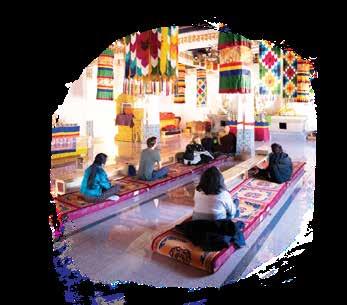 BHUTAN
INDIA
BANGLADESH
TIBET
CHINA
PARO
THIMPHU
BHUTAN
INDIA
BANGLADESH
TIBET
CHINA
PARO
THIMPHU
21 WWW.WHERETHEREBEDRAGONS.COM/PARTNERS
SENEGAL

GROUP DETAILS
Program Size: 10–16 Students
Intended Ages: 12–22
Length: 8–21 Days
ACADEMIC THEMES
African History, Islam, West African Music & Dance, Entrepreneurship, Rural Development, Diaspora, French Language
PROGRAM AREA SPECIFICS
Programming Since 2005
Year-Round Program House and Staff
5 Homestay Communities and 10+ NGO Partners









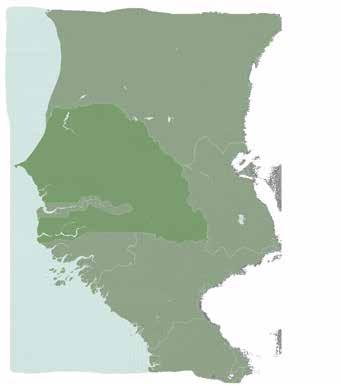

THE INTRICATE PATTERNS OF WEST AFRICAN COUTURE, THOUGH INITIALLY PERCEIVED AS VIBRANT ABSTRACTIONS, SERVE AS A METAPHOR FOR THE DEPTH OF SENEGALESE CULTURES, TRADITIONS, AND HISTORY. Senegal's seemingly unified facade belies its complexity, comprising roughly two dozen ethnic groups, an array of languages, and diverse landscapes spanning deserts, grasslands, and tropical forests. The nation's narrative is rich with influences ranging from ancient animist traditions to the legacies of Islam, Christianity, colonialism, and slavery, juxtaposed with modern phenomena like capitalism, democracy, migration, and globalization.
In Dragons Senegal programming, students delve into this multifaceted tapestry, exploring its historical roots and contemporary implications on a global scale. From the bustling urban hub of Yoff, near Dakar, to rural villages like Toubab Dialaw, Diakhanor, Niodior, and Thies, students engage with local
communities, artisans, and scholars. They examine the intersections between traditional Senegalese arts, such as drumming and dance, and broader historical phenomena like the transatlantic slave trade and the evolution of African diaspora cultures, including African American music and dance. Beyond cultural immersion, students participate in hands-on projects with NGOs focused on women's empowerment, education, and public health. Trekking adventures in regions like Kolda offer insights into wildlife conservation efforts and the significance of the landscape to local communities. Homestays in rural villages provide intimate experiences of rural life, fostering deep connections and understanding among students. Throughout their journey, students engage in reflective discussions on religion, environmental sustainability, and global interconnectedness. By embracing diverse perspectives and immersing themselves in local contexts, students cultivate empathy, and critical thinking skills.
 SENEGAL
MAURITANIA
GUINEA
MALI
TAMBACOUNDA
KEDOUGOU
TEMANTO SAMBA
KOLDA
DENE
THIES
SAINT LOUIS
SENEGAL
MAURITANIA
GUINEA
MALI
TAMBACOUNDA
KEDOUGOU
TEMANTO SAMBA
KOLDA
DENE
THIES
SAINT LOUIS
22
Left: Harry Knight, Angelica Calabrese Right: Christy Sommers, Micah LeMasters
Days 1–2
SENEGAL: TRADITION, EXPRESSION, AND DIASPORA IN WEST AFRICA
Exploring West African diaspora through drumming, dancing, hip hop, and fashion
Days 3–5
» Develop cultural sensitivity through immersive experiences, fostering respect for Senegalese heritage.
» Gain understanding by exploring topics such as slavery's legacy and contemporary Senegalese society.
» Hone interpersonal and intercultural communication skills through interactions with local communities.
» Learn contemporary and traditional forms of rhythm and dance as storytelling.
SAMPLE ITINERARY
Yoff: Orientation, Exploration, and Urban Immersion
The program commences with a cozy oceanside hotel in Yoff, our central hub for exploration. Mornings kick off with wellness check-ins on the terrace, setting the tone for the day ahead, followed by immersive cultural activities across Dakar. Initial days focus on orientation, covering essential topics like health, safety, basic language skills, and mapping out Yoff for familiarity.
Yoff: History, Drumming, Dance, and Hip Hop
Venturing deeper into Dakar, our itinerary includes visits to significant sites such as the Musée des Civilisations Noires and the poignant Île de Gorée, where we engage in discussions about Senegalese history, the legacy of slavery, and the intersection of religion and the slave trade. We also pay a visit to the West African Research Center and hold conversations with the Director, followed by a discussion on Senegalese emigration in Thiaroye. Lunch at the lively Dakar Farmers Market is followed by sunset drumming lessons on the beach, adding a rhythmic touch to our cultural immersion. An enlightening panel with Senegalese American students and time spent with female rappers from the Genji Hip-Hop collective offer unique insights into contemporary Senegalese culture and youth expression.
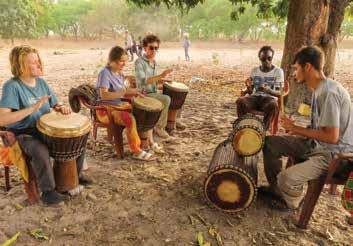
Days 6–10
Thies: Homestays and Community Arts
Transitioning to Thies, we meet our homestay families for a warm introduction to local life. Days are filled with collaboration with a local hip-hop arts collective, exploring dance forms, and learning about traditional medicine or engaging in discussions with Senegalese Peace Corps employees on development projects and educational systems.

Days 11–12
Toubab Dialaw: Transference, Arts, and Closure
The journey concludes in Toubab Dialaw with moments of reflection and a closing ceremony, followed by a final day of beach relaxation, souvenir shopping, and reflective discussions before bidding farewell over a celebratory dinner and heading back to the airport. Throughout, the program strikes a balance between cultural immersion, learning experiences, and personal reflection.
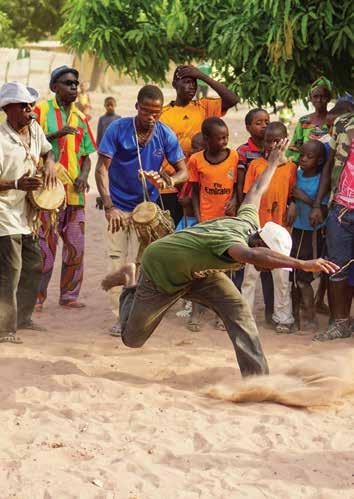
23 EXAMPLE PROGRAM AND ITINERARY
FOCUS OF INQUIRY LEARNING OUTCOMES
MOROCCO

GROUP DETAILS
Program Size: 10–16 Students
Intended Ages: 12–22
Length: 8–21 Days
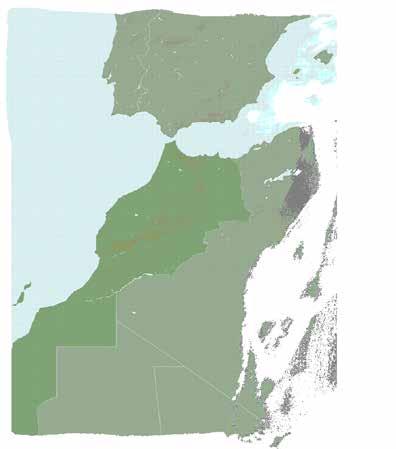





ACADEMIC THEMES
Comparative Religion, North African History, Studies on Colonization, Moroccan Arabic (Darija) & Amazigh languages, Artisanal Crafts, Indigenous Communities, Food & Culture
THE NORTHWESTERN CORNER OF AFRICA, WHERE SNOW-CAPPED MOUNTAINS RISE FROM THE SAHARA DESERT, HAS BEEN HOME TO MOROCCO’S INDIGENOUS PEOPLE—THE AMAZIGH OR "FREE PEOPLE"—FOR OVER 12,000 YEARS. Their steadfast presence in the region has been the primary continuity in an otherwise extraordinarily varied and complicated history. Exchanges, conquests, colonization, and occupations by Carthage, Rome, the Maghreb, France, and Spain have overlapped and intertwined with Amazigh history in a rich and complex timeline of cultural and political influence.
Nowhere represents this layered history better than Rabat, Dragons base for programming in Morocco, where students build a foundational understanding of cultural traditions, history, language, and Islam. Groups staying longer have the opportunity to stay with local Amazigh homestays, delving into language study in French, Darija (a dialect of Arabic), or Amazigh languages, while
PROGRAM AREA SPECIFICS
Programming Since 2007
Program Base In Rabat and Year-Round Staff
10+ NGO Partners
connecting with local guest speakers on topics such as migration, women's and gender studies, tourism, development, art, and religions. From Rabat, we may travel north to explore the imperial cities of Tetouan and Fez, to mentor alongside artisans in ceramic arts and tile-making, learn about traditional medicinal plants, and continue our exploration of Islam, empires, and colonization. In Tetouan, Dragons maintains welcoming homestay communities and alternative lodging options that help students experience a truly immersive and community-supported educational experience.
Further afield, we may embark on a more rugged exploration of the High Atlas Mountains, trekking from village to village and staying with remote Amazigh community hosts, or head further south to Marrakech and the Sahara Desert, where we ride camels to traditional encampments to learn about desert cultures and ways of life. Finally, our
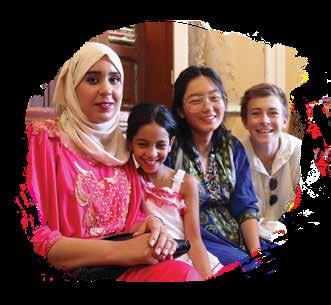
in Morocco can be combined with travel to Spain to explore
Al
MOROCCO
ALGERIA
SPAIN
RABAT
AZILAL
MARRAKESH
FES
TETOUAN
24
programming
the legacy of
Andalus.
Left: Sam Nevins, Ami Li-Su Right: Olivia Wilkins, Dragons archives
Days 1–3
SANDS AND PETALS: EXPLORING MOROCCO’S DIVERSE LANDSCAPES AND NATURAL WONDERS
Exploring women's empowerment, climate change, and nomadism across Morocco’s varied landscapes
Days 4–8
» Understand the connections between geography, climate, ecology, and cultural diversity.
» Reflect on biases, promote cultural understanding.
» Appreciate diversity in Moroccan women's expressions and empowerment.
» Examine historical impact on nomadic lifestyles.
Day 9
Marrakesh: Orientation, Container Building, and Introduction to Course Themes
Our orientation, held in a traditional Moroccan riad, commences with a ceremonial welcome, group discussions on expectations and goals, and workshops promoting tolerance, inclusion, and support. We cover essential topics such as health and safety, Moroccan cultural norms, navigation skills, basic phrases in Moroccan Arabic (Darija), and the fundamentals of Islam. Additionally, we explore the bustling Jemaa el-Fnaa square and engage in cooking classes and lunch with a local non-profit supporting women's empowerment.
Kalaat M’gouna: Rose Capital and Homestay Experience
Departing Marrakesh, we venture to Kalaat M’gouna, famed for its rose production. Our first night is spent at Kasbah Itran, offering picturesque views of the River M’goun. Students are carefully briefed and prepared to participate in local homestays, immersing themselves in Moroccan daily life and joining community activities like couscous making, nomad encounters through hikes, or collaborative service projects with local youth, leading to an immersive understanding of Moroccan society and culture.
Zago: Environmental Awareness and Cultural Immersion in the Sahara Desert
From Klaat M’gouna, our journey leads us to the Sahara, where we meet with Friends of the Environment to discuss the impact of desertification. Exploring the Draa River Valley, we visit Tamegroute to learn pottery-making and gain insight into the economic importance of date palms. Further into the Sahara, we stay in a traditional Amazigh camp, enjoying camelback rides, cultural exchanges, and authentic Amazigh music by the campfire.
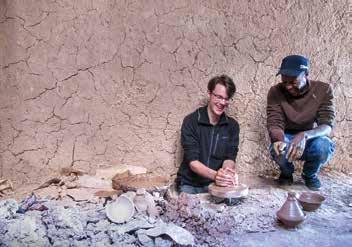

Day 11–13
Marrakesh: Reflection, Conclusion, and Historical Sites
Returning to Marrakech, we visit the UNESCO world heritage site of Ait Ben Haddou, renowned for its earthen architecture featured in films. Our final day includes goal-setting and reflection, culminating in a celebratory dinner marking the conclusion of our journey. We then transfer to the airport, enriched by our experiences and motivated to apply our learnings back home.
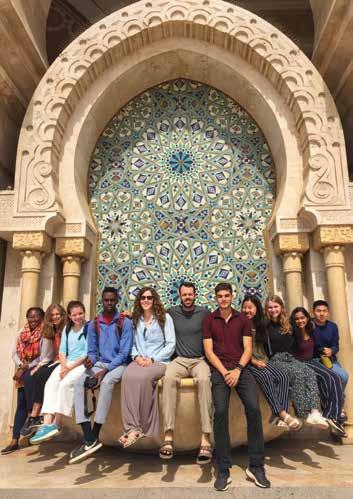
25 EXAMPLE PROGRAM AND ITINERARY
SAMPLE ITINERARY FOCUS OF INQUIRY LEARNING OUTCOMES

GROUP DETAILS
Program Size: 10–18 Students
Intended Ages: 12–22+
Length: 10–21+ Days

PERU
ACADEMIC THEMES
Archeology & Ancient Civilizations, Colonialism & Neocolonialism, Adaptations To Climate Change, Cultural Survival, Neotropical Ecology & Conservation
FEW COUNTRIES IN THE AMERICAS EVOKE AS MUCH MYSTERY AND WONDER AS PERU, WITH ITS SOARING ANDEAN PEAKS, EXPANSIVE AMAZON RAINFOREST, AND DIVERSE CULTURAL IDENTITIES. In the ancient seat of the Inca Civilization, Dragons maintains a yearround program house, a tightly knit community with family hosts, and ongoing reciprocal relationships with an excellent language school.






Our connections to local and national NGOs, politicians, academics, schools, and community-run projects allow students to learn directly from primary sources about climate change, agrobiodiversity, economic development, cultural identity, women’s empowerment, ecology, and conservation. Students also explore further afield, learning from local guides about spiritual relationships to sacred Apus (mountains) on multiday supported treks, or meander through
PROGRAM AREA SPECIFICS
Programming Since 2003
Language School and Year-Round Staff
3 Homestay Communities and 10+ NGO Partners
ancient cities and terraces, appreciating perfectly hewn stonework and learning about traditional food systems of the Andes. While visiting Parque de la Papa, a collection of Quechua communities working to preserve and share their traditional way of life, students learn to herd and milk livestock, participate in a community service project, and join our homestay families as they prepare traditional meals.
Traveling to the Amazon basin, we work with a traditional healer to understand medicinal plant knowledge or support initiatives aimed at providing food security to an aging population, whose youth have left home seeking work in tourism and mining. We focus on both traditional ecological knowledge and contemporary scientific research, connecting with indigenous experts and international scientists alike as we explore efforts at conservation and research.
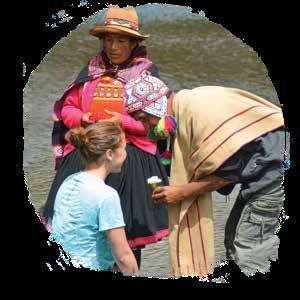 PERU BRAZIL
ECUADOR
BOLIVIA
LIMA
CUSCO
MACHU PICCU
PERU BRAZIL
ECUADOR
BOLIVIA
LIMA
CUSCO
MACHU PICCU
MADRE DE DIOS
AREQUIPA ICA
26 WWW.WHERETHEREBEDRAGONS.COM/PARTNERS
Left: Ryan Kost, Tom Pablo Right: Tom Pablo, Dragons archives
BOLIVIA

GROUP DETAILS
Program Size: 10–16 Students
Intended Ages: 14–22+
Length: 10–21+ Days
ACADEMIC THEMES
Globalization & Community Response, Economy, Ecology & Culture, Social Movements, Neoliberal Reform, Language Study, Agroecology






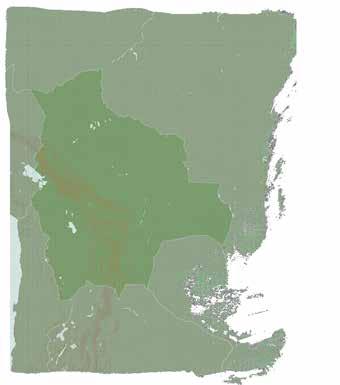
KNOWN FOR ITS EXTREMES, BOLIVIA BOASTS SOME OF THE MOST ASTONISHING CULTURAL AND ECOLOGICAL DIVERSITY ON EARTH. With 36 distinct ethnic and language groups, vast mountain ranges, dense Amazon jungle, and a dynamic sociopolitical landscape, Bolivia offers an exhilarating panorama for exploring the connections between past and present in the heart of South America.
The Dragons program hub in Bolivia is a diversified organic farm nestled within the fertile Cochabamba Valley. Here, students have the unique opportunity to live with Quechua families who impart knowledge about traditional farming practices, cultural traditions, weaving, painting, ceramics, and music. Throughout the day, we engage with local projects and organizations dedicated to decolonizing education, adapting to climate change, and fostering community resistance against the exploitation of local resources by external interests.

PROGRAM AREA SPECIFICS
Programming Since 2005
Year Round Staff and 2 Year-Round Program Houses
3 Homestay Communities and 10+ NGO Partners
For those emphasizing Spanish and Quechua language acquisition, students work closely with professional language instructors in small groups to refine their conversational skills.
In La Paz and El Alto, students interact with transnational NGOs focused on climate change, urbanization, water rights, and national politics, or collaborate with a globally recognized community arts collective addressing decolonization and other critical social and environmental issues confronting Bolivia today.
Venturing into the Yungas region, students learn from the Afro-Bolivian community of Tocaña about issues of race and identity in Latin America, as well as the ongoing challenges facing local communities and ecosystems due to the expanding coca leaf production. For more adventurous groups, excursions to Amazonian communities provide insights into traditional ecological knowledge and the pressing challenges posed by deforestation, mining, and oil extraction.
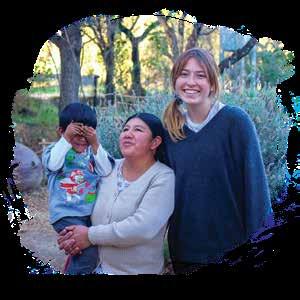 BOLIVIA
BRAZIL
CHILE
ARGENTINA
PARAGUAY
CORDILLERA APOLOBAMBA
LA PAZ
CORDILLERA REAL
COCHABAMBA
BOLIVIA
BRAZIL
CHILE
ARGENTINA
PARAGUAY
CORDILLERA APOLOBAMBA
LA PAZ
CORDILLERA REAL
COCHABAMBA
27 WWW.WHERETHEREBEDRAGONS.COM/PARTNERS
GUATEMALA

GROUP DETAILS
Program Size: 10–16 Students
Intended Ages: 12–22
Length: 8–21 Days
ACADEMIC THEMES
Indigenous & Human Rights, Food Systems & Cultural Identity, Rural Development, Women's Empowerment, Maya Civilizations, Spanish Maya Language Study
PROGRAM AREA SPECIFICS
Programming Since 2003
Year-Round Program House, Staff, & Language Schools
5 Homestay Communities and 10+ NGO Partners





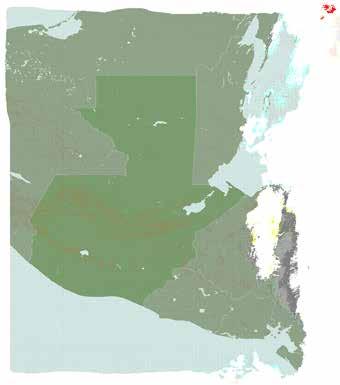
THE LAST KNOWN WRITTEN RECORD FROM THE PRE-COLONIAL MAYA CIVILIZATION DATES TO 911 AD. However, characterizing the Maya solely as an ancient culture overlooks the vibrant reality of modern-day Guatemala. Despite the impacts of colonization, globalization, and state violence on rural areas, a living cultural legacy endures. Dragons programming amplifies the voices of indigenous and campesino communities, showcasing their resilience against various external pressures. In the former colonial capital of Antigua, we collaborate with NGOs dedicated to human rights and social justice amidst ongoing societal challenges. Students have the opportunity to interact with journalists, documentary filmmakers, fair trade organizations, while delving into the historical complexities of colonialism and conquest in Central America. Along the serene shores of Lake Atitlán, students immerse in daily life while living with Tzutujil and Q'eqchi families.
Through personalized language instruction, students delve into both Mayan and Spanish languages, fostering deeper connections with the communities. Collaborating with local partners, students engage with pressing issues such as food sovereignty, cultural preservation, youth empowerment, artistic expression, and environmental conservation.
Venturing further into the Western Highlands, students apprentice with grassroots NGOs and community organizations around the city of Xela, focusing on rural health, sustainable development, agroecology, and reforestation efforts. Accommodation options range from living with local families to staying in nearby hotels.
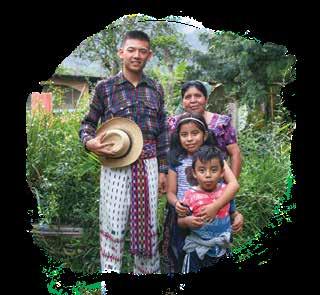
Dragons maintains active programming in the northern regions, exploring ancient civilizations, tropical ecology, deforestation, and conservation efforts. In the remote corners of the Western Highlands, treks through the Cuchumatanes Mountains provide opportunities to engage with communities and
GUATEMALA
EL SALVADOR
MEXICO
BELIZE
TODOS SANTOS
TIKAL
SAN LUCAS TOLIM Á N
ANTIGUA
XELA
28
learn from their indigenous worldviews.
Left: Jesse Moore, Tom Ni Right: Sarahí León, Ananda Casanova
Days 1–2
GUATEMALA: COLONIZATION AND DECOLONIZATION OF THE MUNDO MAYA
Exploring Maya cosmovision, indigenous and human rights, and community activism
Days 3–5
» Learn the history of conquest, colonization, and globalization.
» Learn from local indigenous and human rights activists about upholding international treaties and laws.
» Become familiar with Maya cosmology, origin stories, and ceremonial relationships to the land and sky.
» Collaborate with NGOs to understand grass-roots initiatives for food security and wellbeing.
SAMPLE ITINERARY
Tecpan: Orientation, Container Building, and Introduction to Maya Culture and History
We begin our program orientation at a small coffee farm in the Guatemalan highlands, where we spend the first few days establishing the container for our group, reviewing health and safety, Guatemalan history and Mayan cultures, and main course themes of social and environmental justice. Students begin to take on important leadership roles, explore the landscape, and set goals for the program to come.
Pachaj: Learning Service and Environmentalism
From our orientation site, we’ll visit the community of Pachaj, a small indigenous hamlet nestled in the pine forests outside of Guatemala’s second biggest city, Quetzaltenango. Here, we are invited to live with local Maya K’iche’ families and learn about their rich way of life, cultural heritage and cosmovision. We have the option of taking language classes as we collaborate with local reforestation project Chico Mendes. With local youth environmental leaders, we learn about environmental issues facing Guatemala and local community response.
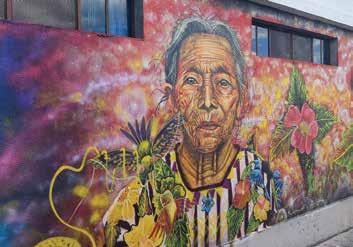
Days 6–12
San Juan La Laguna: Language Intensive and Community Immersed Learning
From Pachaj, we prepare for a three day trek to Lake Atitlan, exploring remote indigenous communities and stunning natural beauty. Upon arrival we settle into homestays and begin a routine of intensive language lessons in the mornings, and afternoons volunteering with the Mesoamerican Permaculture Institute on seed saving and agroecology initiatives. Students may pursue independent projects on weaving, cooking, music or dance and more. Guest speakers share expertise about critical local issues with global implications such as immigration, Mayan spirituality, impacts of tourism and the history of the region.

Days 13–14
Antigua: Transference, Synthesis, and Celebration
Our final phase of the program takes us to a quiet retreat space and avocado farm outside of Antigua where we begin our transference curriculum, synthesizing and integrating our learning, celebrating the journey, and preparing to integrate our program into our lives back on campus.
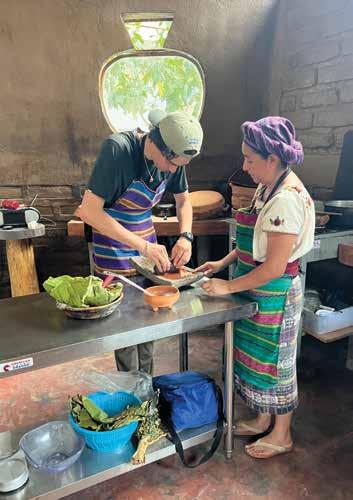
29 EXAMPLE PROGRAM AND ITINERARY
FOCUS OF INQUIRY
LEARNING OUTCOMES
EUROPE

GROUP DETAILS
Program Size: 10–18 Students
Intended Ages: 14–22
Length: 10–14 Days
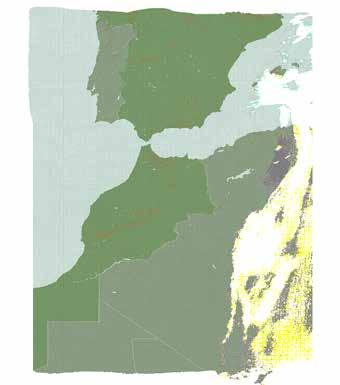





ACADEMIC THEMES
Agroecology & Climate Change, Migration, Christianity & Islam, Arts & History
ALONG THE SHORES OF SOUTHERN EUROPE
OVERLAPPING HISTORIES OF EMPIRE AND CIVILIZATION MESH WITH HISTORICAL WAVES OF MIGRATION AND SYNCRETIC CULTURAL EXPRESSION. In Italy and Spain, Dragons programming explores the tenants of Western Civilization, while delving into complex contemporary issues related to migration, climate change and food systems.
In Tuscany and Rome, we explore Italy's rich history of art and civilization showcasing unparalleled creativity and cultural innovation. Outside the city, we retreat to a monastery and education center for reflection and deeper exploration of the history of Catholicism and how it shaped Italian society.
On a picturesque, hundreds-year old agro-ecology center and working farm, we live with a local family to get hands-on
understanding of pressing challenges including climate change impacts, migration pressures due to geopolitical instability, and agricultural sustainability.
Meanwhile, in Andalucia, we explore cultural and historical threads woven from influences in Northern Africa, with Christian, and Muslim Arab civilizations that reflect centuries of rich exchange and synthesis. Here we are able to delve into homestays and Spanish language study, as we intern alongside local artisans and farmers that share perspectives on local identity and lifeways.
PROGRAM AREA SPECIFICS
Programming since 2021
Farm-Based Education Language Study
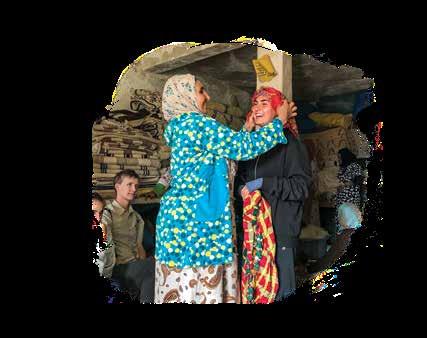
Engaging with migrant North African communities, we dialogue about economic justice, political persecution and the global structural factors leading to ever increasing economic inequality between the global north and global south.
MOROCCO
ALGERIA
PORTUGAL
SPAIN
MARRAKESH
RABAT
TANGIER
GRANADA
30 WWW.WHERETHEREBEDRAGONS.COM/PARTNERS
Left: Dragons archives, Kevin Witkow Right: Kris Hohag, Arvin Dang
NORTH AMERICA
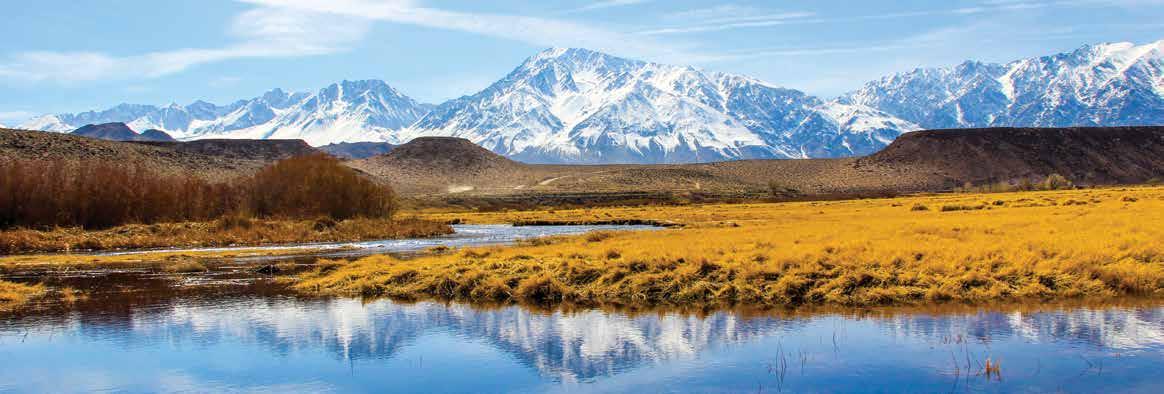
GROUP DETAILS
Program Size: 8–14 Students
Intended Ages: 16–22
Length: 6–18 Days
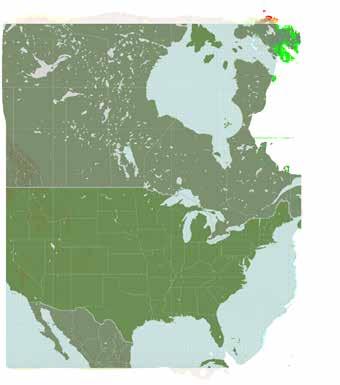





ACADEMIC THEMES
Indigenous Rights, Politics of Freshwater, Wildlife Management & Ecology, Arts & Activism, Migration & Border Studies
FROM SEA TO SHINING SEA, THE VAST NORTH
AMERICAN CONTINENT HOLDS ENDLESS SPACE FOR EXPLORATION AND OPPORTUNITY TO PURSUE “THE AMERICAN DREAM." But the enduring legacy of settler colonialism persists through the systemic marginalization and dispossession of Indigenous peoples, the rapid depletion of soil and water resources, and an ever widening gap between “haves” and “have nots."
Dragons programming in North America explores relationships to land and water, underscoring the ongoing struggles for Indigenous sovereignty and environmental justice and highlighting the interconnectedness of Indigenous communities in their resistance against oppression.
In the Southwestern United States in Western Colorado, Northern New Mexico, and Southern Arizona, Dragons programming connects students to ranchers, indigenous
PROGRAM AREA SPECIFICS
Programming since 2020
Programming with 4 Native American Tribes
Sea Kayaking and Farm-Based Education
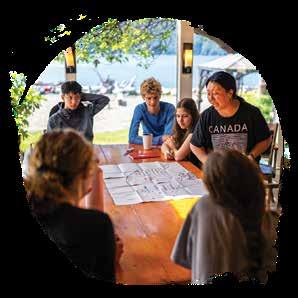
activists and ecologists working to maintain a balance between rapid urban and agricultural development and healthy ecosystems. Students participate in seed saving initiatives, mural projects, and ecological restoration in the Sonoran Desert. Along the southern border, these conversations mesh with exploration of border politics, empire, and human rights. From the evolving landscape of the Sonoran Desert, we look north, to the waterworld that is the Great Lakes and western Lake Superior, where the world's largest body of freshwater offers an adventuresome and pristine backdrop for learning about the politics and ecology of freshwater, sustainable lifeways and Ojibwe culture. Here, we work with culture bearers and tribal members working to maintain language and traditional cultural ways of life and resource management. We partner with the Great Lakes Indian Fish and Wildlife Commission to learn about traditional ecological knowledge and indigenous approaches to natural resource management.
UNITED STATES
CANADA
MEXICO
CHINA
BOULDER PAONIA
BEARS EARS
TUCSON
APOSTLE ISLANDS
31 WWW.WHERETHEREBEDRAGONS.COM/PARTNERS
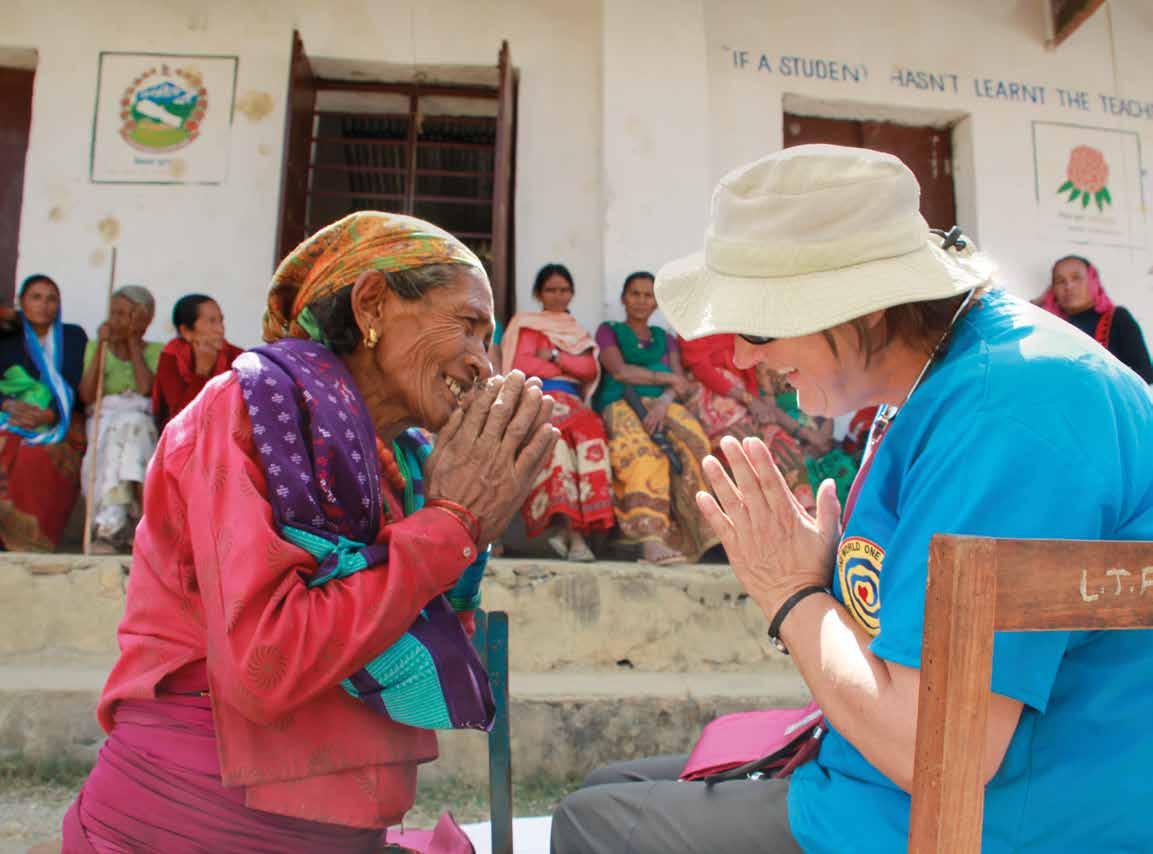
My Educator Program in Nepal was equivalent to a graduate level education course. After nearly 40 years working in this field, I learned a tremendous amount on both personal and professional levels.”
32 Photos:
Amrit Ale, Simon Hart, Dragons archives, Yingzhao Lui
—Vicki Weeks, Founder of Global Weeks & Former Director of Global Education LAKESIDE SCHOOL
PROFESSIONAL DEVELOPMENT
EXPERIENTIAL TRAINING & DEVELOPMENT FOR ADMINISTRATORS AND PROGRAM LEADS
FACULTY WORKSHOPS & RETREATS
We travel to you, taking participants through an active learning process that challenges comfort zones and assumptions, modeling expert cross-cultural facilitation tools and strategies. Sessions last from a half-day to three days.
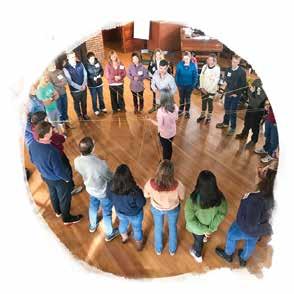
TRAINING MODULES
COACHING & CONSULTING
Coaching and consulting brings industry expertise to your global initiatives and challenges. Partners are paired with our senior administration through on-line sessions. We share strategies, systems, and tools.
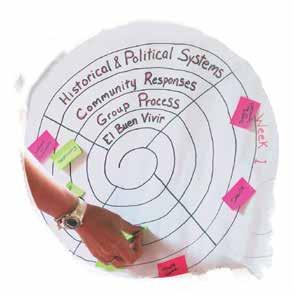
EDUCATOR PROGRAMS & REGIONAL SEMINARS
Designed for teachers and educators, our international programs experientially demonstrate best practices in global education. Our US-based Regional Seminars mirror a student global program while training to pedagogy and facilitation skills.
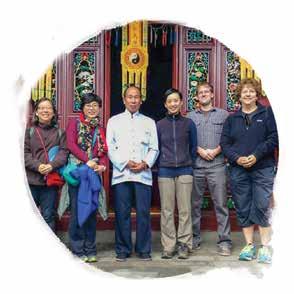
• Program and Curriculum Design: How do we intentionally design experiences that cultivate the values, skills, and knowledge for cultural competency? Employ backward design to build skills progressions towards defined learning outcomes. Participants experiment with specific program components and design effective tone-setting, orientation, and transference curriculum.
• Risk Management: How do we identify, assess and mitigate risks, ensuring that student safety and growth are appropriately balanced? Understand the inexorable link between risk and learning, assess personal and institutional risk tolerance, build skills for decision-making, gain expertise on industry standards for specific student activities, and learn to respond to incidents in the field.
• Student Group Management: How do we offer the most learning and growth from each cross-cultural experience? Build skills for creating an inclusive, safe, and tight student group culture, generate buy-in, align expectations, and empower students to take ownership of their own learning and success.
• Community Engagement: How do we build and maintain mutually-beneficial relationships of trust and reciprocity with community partners? Support students through important conversations and learning about power, privilege, disparity and identity. Cultivate appropriate mindsets for cross-cultural engagement, self-awareness and relationships building.
33 WWW.WHERETHEREBEDRAGONS.COM/PARTNERS
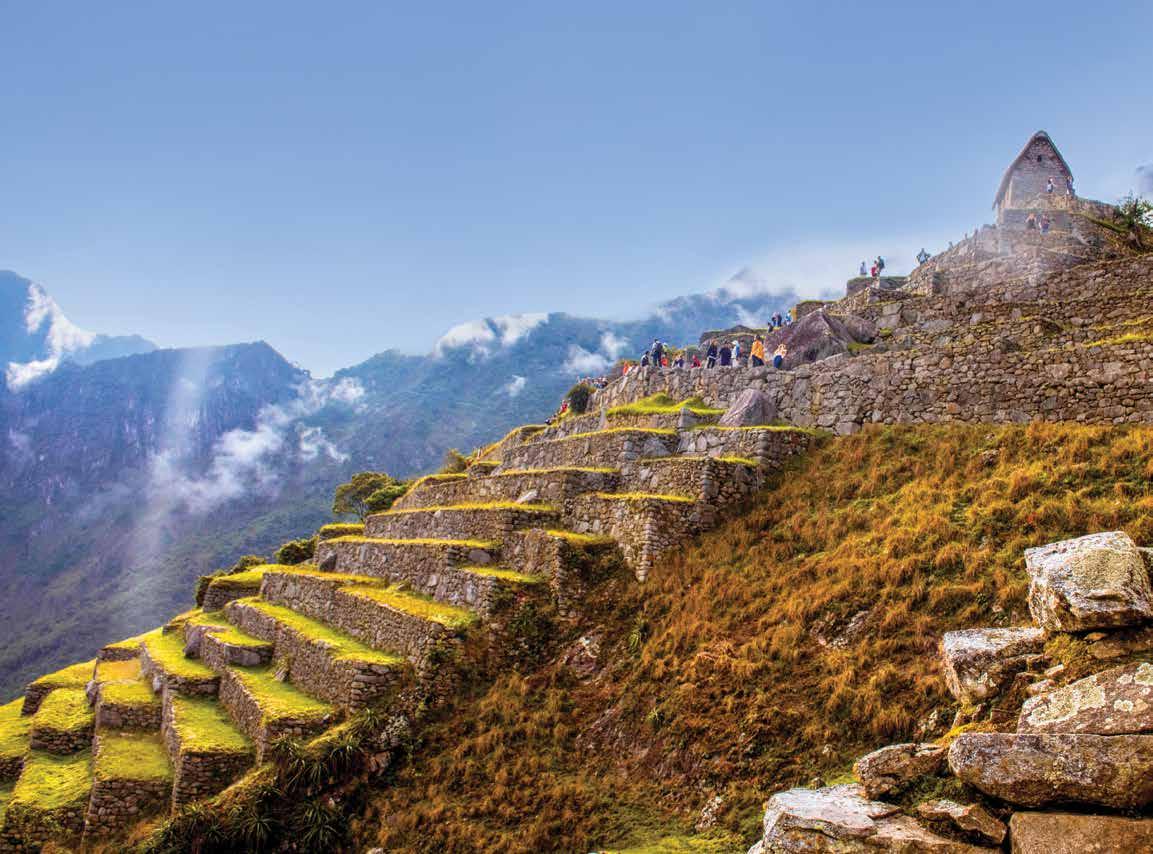
Dragons instructors provided a complimentary role by bringing experiential pedagogy to help students reflect and process, as well as solid training in risk management. They connect well with students and work well in dynamic leadership teams, which makes them a valuable resource on any study abroad program."
—Helena Kaufman, Director of Off-Campus Studies CARLETON COLLEGE
34 Photo Credit
RISK MANAGEMENT
TRANSFORMATIVE GROWTH MEANS LEANING INTO DISCOMFORT
Dragons programming challenges students academically, physically, and emotionally. As your Partner, our job is to help students embrace those challenges while navigating the associated risks—safely, professionally, and transparently. When working with Dragons, you inherit risk management systems, regional contacts, and a robust team of veteran administrators to help navigate a wide range of unexpected challenges. Whether guiding families and participants through proactive measures to prepare for their travel experience, or responding to a complex regional concern abroad, Dragons provides thorough, timely, and broadly sourced information to empower informed decisions.
FOUNDATIONAL ASPECTS OF OUR RISK MANAGEMENT SYSTEM
We Hire Experienced Staff

Typically, a Dragons instructor team collectively represents multiple languages, ten or more years of in-country experience, and years managing students in the field. Instructors call on their linguistic fluency, local contacts, and regional expertise to deftly navigate risk management issues. Instructors are also adept at working with students to manage medical issues, should they arise. With Dragons, you get access to the most trusted and experienced guides in the industry.
We Place a Premium on Professional Development
Each year, instructors participate in at least one 6-10 day staff training focused on curriculum development, innovative education practices, student group management, cross-cultural communication, and risk management. This keeps our staff up-to-date with best practices in the field of international education, and empowers them to work within Dragons systems and protocols. Because we facilitate Gap Year and Summer programming, our instructors build skills over years of repetition and training.
We Have a 24/7 Support Team at Headquarters
The Dragons Risk Management Team is dedicated to ensuring the highest-quality international programming, with acute attention to the safety and security of our students, instructors, and in-country partners. This team is on-call 24/7 while students are in the field and serves as an asset to our partners in the field with us. All students are automatically enrolled in our emergency evacuation and medical consulting program with International SOS.
We Have a Robust Network of In-Country Resources
Our organization is built on decades of personal connections, and we often receive word of security issues before they are taken to press. We supplement on-the-ground updates with reports from the US State Department, the Overseas Security Advisory Council, the World Health Organization, the Center for Disease Control, and our insurance provider. As needed, we leverage these contacts to mobilize necessary resources. We have carefully researched in-country medical facilities, and our instructors go into the field with comprehensive emergency management tools.
IF YOU HAVE QUESTIONS ABOUT DRAGONS SAFETY AND SECURITY POLICIES PLEASE CONTACT US. WE WOULD BE MORE THAN HAPPY TO DISCUSS THE FINER POINTS OF OUR RISK MANAGEMENT SYSTEMS WITH YOU.
?
35 WWW.WHERETHEREBEDRAGONS.COM/PARTNERS
IT'S ALL ABOUT THE PEOPLE
THE FOUNDATION OF EVERY PARTNERSHIP
Our instructors, administrators, and community hosts make up a network of authentic relationships dedicated to providing transformative learning experiences. As a partner, you'll collaborate closely with us to ensure impactful experiences for every student.
SCHOOLS AND UNIVERSITIES
PARTNERSHIPS TEAM
PARTNERSHIPS TEAM PROGRAMMING TEAM
DRAGONS INSTRUCTORS
COMMUNITY PARTNERS
The Partnerships Team brings a diverse background in study abroad, program development, professional training, and customer service. New partners work with Simon to align vision and goals and make sure it's the right fit. Once you’re committed to working with us, our soulful and detail-oriented Admissions Associate Becca will walk you through the admissions process. Finally, our talented and deeply experienced team of Program Directors—including Kevin, Christine, and Lauren—will carefully guide you through all of the pre-departure process.

SIMON HART, Director of Strategic Partnerships
BA Anthropology, Carleton College; Founded Dragons Partnerships in 2012; 12 years training, consulting, and building programs for schools and universities.

LAUREN GILHULY, Program Coordinator
BA French & Geography, Dartmouth College; MA International Education, Middlebury; Global education department design, classroom teacher, field instructor around the world.
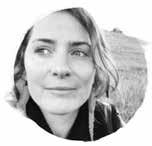
BECCA HART, Admissions Associate Artist, forest therapy guide, astrologer, organic farmer, health and wellness specialist, customer service guru.

CHRISTINE RANDALL, Program Coordinator
BA Political Science, Yale University; Program development and instruction at global traveling high school; classroom teacher, and social justice advocate.

KEVIN PORTER, Program Director
BA Government, Harvard University; 10+ years experience building and managing programming around the world; expertise in risk management and team leadership.

OUR ADMIN TEAM
Our team is a bit of everything—educators, community builders, social activists, environmentalists, parents, thought leaders—and always ready to support where needed.
36
PROGRAMMING TEAM
The Programming Team is composed of career professionals with decades of in-field instruction and administrative experience. They include Our Director of Programming, Risk Management Director, Regional Program Directors, and Country Coordinators, who work together to customize and build new itineraries, manage program area assets and consult and inform on risk assessment and emergency response.
Risk Management & Emergency Response Team
These teams support you in assessing regional-specific risks, provides critical information to families and students before travel, and is on-call 24/7 to respond to student issues in the field.
DRAGONS INSTRUCTORS
Country Coordinators (CCs)
CCs offer you immediate access to a range of community relationships and learning opportunities on the ground. They support instructors and the Partnerships Team in building out your itinerary and talk you through available options.
Program Directors (PDs)
PDs oversee regional instructor communities, nurture local relationships, and transfer access to your students. They are responsible for training staff, overseeing regional risk management, and assessing impact on local communities.
In the field of global experiential education, Dragons instructors set the industry standard. All instructors are carefully vetted and undergo rigorous background checks. Once hired, instructors receive intensive training in Dragons pedagogy, risk management, and emergency response.
Education & Life Experience
Most of our instructors hold a master’s degree or PhD. We also hire for wisdom gained through unique life experiences.
COMMUNITY PARTNERS
High Retention Rate
Over 80% of our instructors return each year, and over 60% have worked 3+ courses.
Diversity
The majority of our staff were born outside of the US and are multilingual; many grew up in the communities we work.
Our community hosts represent the heart of the student experience and include our carefully selected and trained homestay families—many of which have worked with us for a decade or more, skilled independent study mentors, inspiring guest speakers, professional language teachers, trekking guides and learning service partners. We do not outsource our work to Third Party operators, but rather source staff and train all of the personnel we work with. This “all in-house” experience ensures a higher quality and safer student experience.
Homestay Families
Homestay communities are chosen based on the unique perspectives and learning offered there. Students become a part of an established network of relationships that offers so much more than a place to sleep and eat.
Local NGO Partners
Through partnerships with local NGOs, students gain firsthand perspectives and deeper understanding. They receive mentorship from dedicated and inspired leaders and participate in Learning Service projects related to critical social and environmental justice initiatives.
STUDENT GROUP
Language Instructors
Language learning is a living conversation about culture and worldview. Our professionally trained and experienced language teachers take students out into the world to interact with local people and learn about important cultural characteristics of the place.
Independent Study Project Mentors
Masters of Tai Qi, seed saving, weaving, drumming, healing arts, woodworking, fishing, or academics all share their personal wisdom and craft through formal apprenticeships and mentored conversations, allowing students to learn directly from local area experts.
37 WWW.WHERETHEREBEDRAGONS.COM/PARTNERS
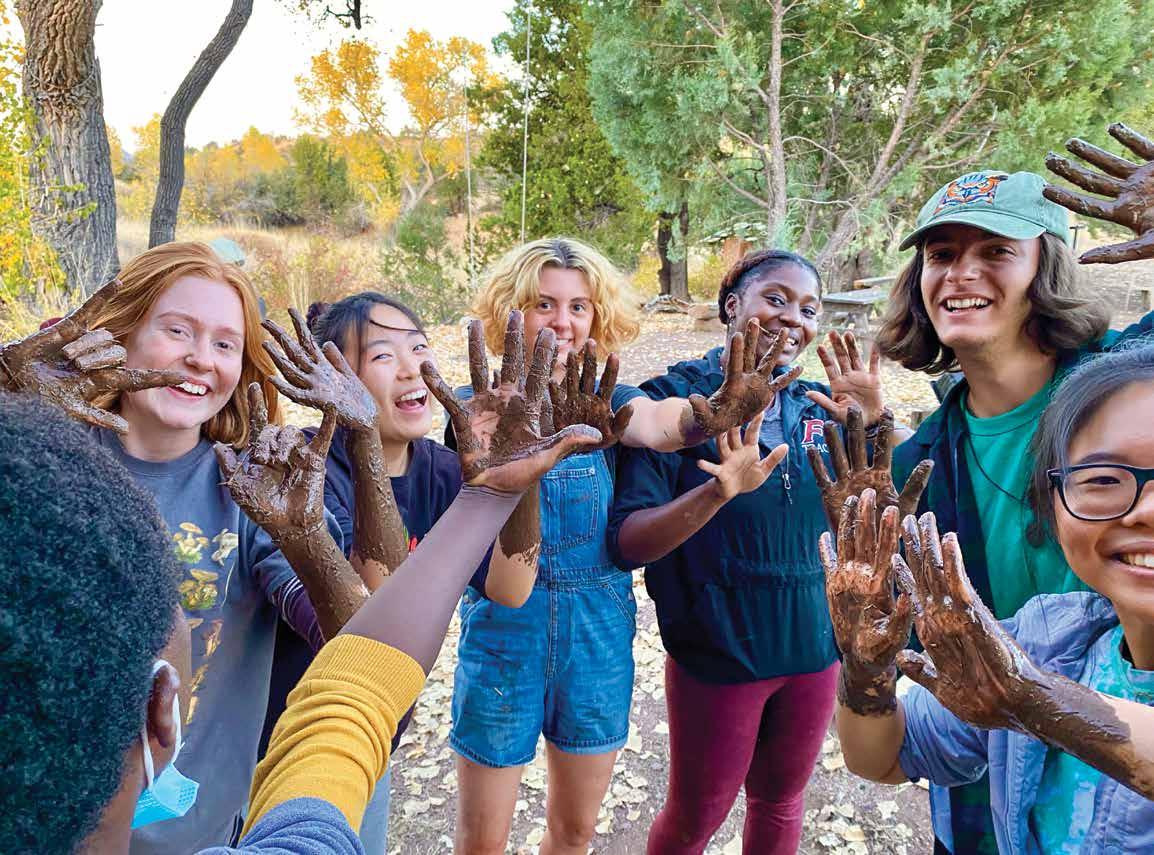
Dragons reputation is well deserved. They are a great partner—visionary, professional, generous, and in this work for the right reasons."
—Peter Brown, Director of Global Education MENLO SCHOOL
38 Photos:
Wiig
Jac Kovarik, Liz
FAQ s
SUPPORTING YOUR EXPERIENCE
How do you price programming?
Tuition is calculated using the per person daily costs on the ground, potential sponsorship for faculty, instructor costs and administrative and risk management costs. Student programming is competitively priced, and often cheaper than other programs. Dragons prioritizes spending on student learning and safety.
How many instructors are staffed on each program?
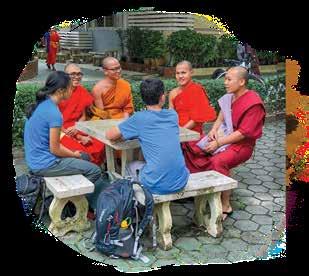
Most courses have two instructors, two faculty and 10–16 students. These ratios allow for the highest quality mentorship and student learning. They also allow us to engage directly with community partners without causing negative impacts. For groups over 16 students, we will often staff a third Instructor.
What is the right group size?
In any educational setting, mentorship and guidance is often what makes the difference. We feel that 10-14 students is a sweet spot in terms of student learning and engagement. We also offer experiences for larger groups, but will often include group splits or mirrored itineraries to foster deeper connection and learning.
Do you manage flights?
We prefer that partners handle flights directly, and we can put you in touch with several reputable group travel companies. We can also handle flights for you for a coordination fee.
What if we don’t want to do homestays?
We see great value in moments when students directly engage with local people outside the group. Homestays are often the most powerful and challenging component of any program and lead to the greatest moments of growth and learning. However, not every program engages in homestays, and we offer day-stays, or meals with families as an alternative.
Are all Dragons programs rugged?
We prioritize responsible travel by working with local businesses, carefully considering cultural and environmental impact. That often means adjusting our standards of comfort to more closely approximate local ways of life. We see this as a pedagogical tool for cultivating empathy and true understanding of a place. With that in mind, we adjust our programming to meet the needs of our partner, with student learning always at the center.
NEXT STEPS
VISIT OUR WEBSITE
Visit Dragons website to see photos, videos, more specific program descriptions, and read participant reflections from the field via our student travel blog, The Yak Board. If you have questions while exploring our site, just send a message to us via Live Chat.
SCHEDULE A FREE CONSULTATION
Follow the QR code to schedule an exploratory conversation. We love hearing from prospective partners about their programming and goals! Our staff is ready to answer any question, no matter how big or small. And we’re always happy to put you in touch with other partner schools as references.

MEET A DRAGONS INSTRUCTOR
Our Instructors and Partnerships Team Members are happy to travel to your school to speak further about our partnerships with schools, the student experience or professional development trainings and workshops.
CONTACT INFORMATION
Tel: +1 303.413.0822
Email: info@wheretherebedragons.com
Web: www.wheretherebedragons.com/partners
39 WWW.WHERETHEREBEDRAGONS.COM/PARTNERS


Asia | Latin America | Africa | North America | Europe 1905 15th Street #4129, Boulder, CO 80306 Tel: 303.413.0822 | Email: info@wheretherebedragons.com WWW.WHERETHEREBEDRAGONS.COM/PARTNERS Certified B Corporations are businesses that meet the highest standards of verified accountability, transparency, and social and environmental performance. RUGGED TRAVEL LANGUAGE STUDY LEARNING SERVICE FOCUS OF INQUIRY SPIRITUAL TRADITIONS TREKKING ENVIRONMENTAL & SOCIAL JUSTICE INDEPENDENT STUDY PROJECT HOMESTAY DEVELOP YOUR VISION. MAPMAKERS ONCE DREW DRAGONS TO REPRESENT LANDS UNKNOWN. TODAY, GOING “where there be dragons” MEANS EXPLORING BEYOND WHAT'S known TO YOU . WHEN WE ENGAGE THE UNFAMILIAR, WE DISCOVER NEW PARTS OF OURSELVES AND THE WORLD.



















 TAIWAN
CHINA
TAIPEI
TAITUNG
YILAN
TAROKO GORGE
TAIWAN
CHINA
TAIPEI
TAITUNG
YILAN
TAROKO GORGE















 THAILAND
LAOS
CAMBODIA
INDIA
CHINA
THAILAND
LAOS
CAMBODIA
INDIA
CHINA








 INDIA
PAKISTAN
CHINA TIBET NEPAL
INDIA
PAKISTAN
CHINA TIBET NEPAL




 NEPAL
INDIA
CHINA
TIBET
BHUTAN
DELHI
LEH
KATHMANDU POKHARA PATAN
NEPAL
INDIA
CHINA
TIBET
BHUTAN
DELHI
LEH
KATHMANDU POKHARA PATAN



 BHUTAN
INDIA
BANGLADESH
TIBET
CHINA
PARO
THIMPHU
BHUTAN
INDIA
BANGLADESH
TIBET
CHINA
PARO
THIMPHU



 SENEGAL
MAURITANIA
GUINEA
MALI
TAMBACOUNDA
KEDOUGOU
TEMANTO SAMBA
KOLDA
DENE
THIES
SAINT LOUIS
SENEGAL
MAURITANIA
GUINEA
MALI
TAMBACOUNDA
KEDOUGOU
TEMANTO SAMBA
KOLDA
DENE
THIES
SAINT LOUIS









 PERU BRAZIL
ECUADOR
BOLIVIA
LIMA
CUSCO
MACHU PICCU
PERU BRAZIL
ECUADOR
BOLIVIA
LIMA
CUSCO
MACHU PICCU




 BOLIVIA
BRAZIL
CHILE
ARGENTINA
PARAGUAY
CORDILLERA APOLOBAMBA
LA PAZ
CORDILLERA REAL
COCHABAMBA
BOLIVIA
BRAZIL
CHILE
ARGENTINA
PARAGUAY
CORDILLERA APOLOBAMBA
LA PAZ
CORDILLERA REAL
COCHABAMBA



























